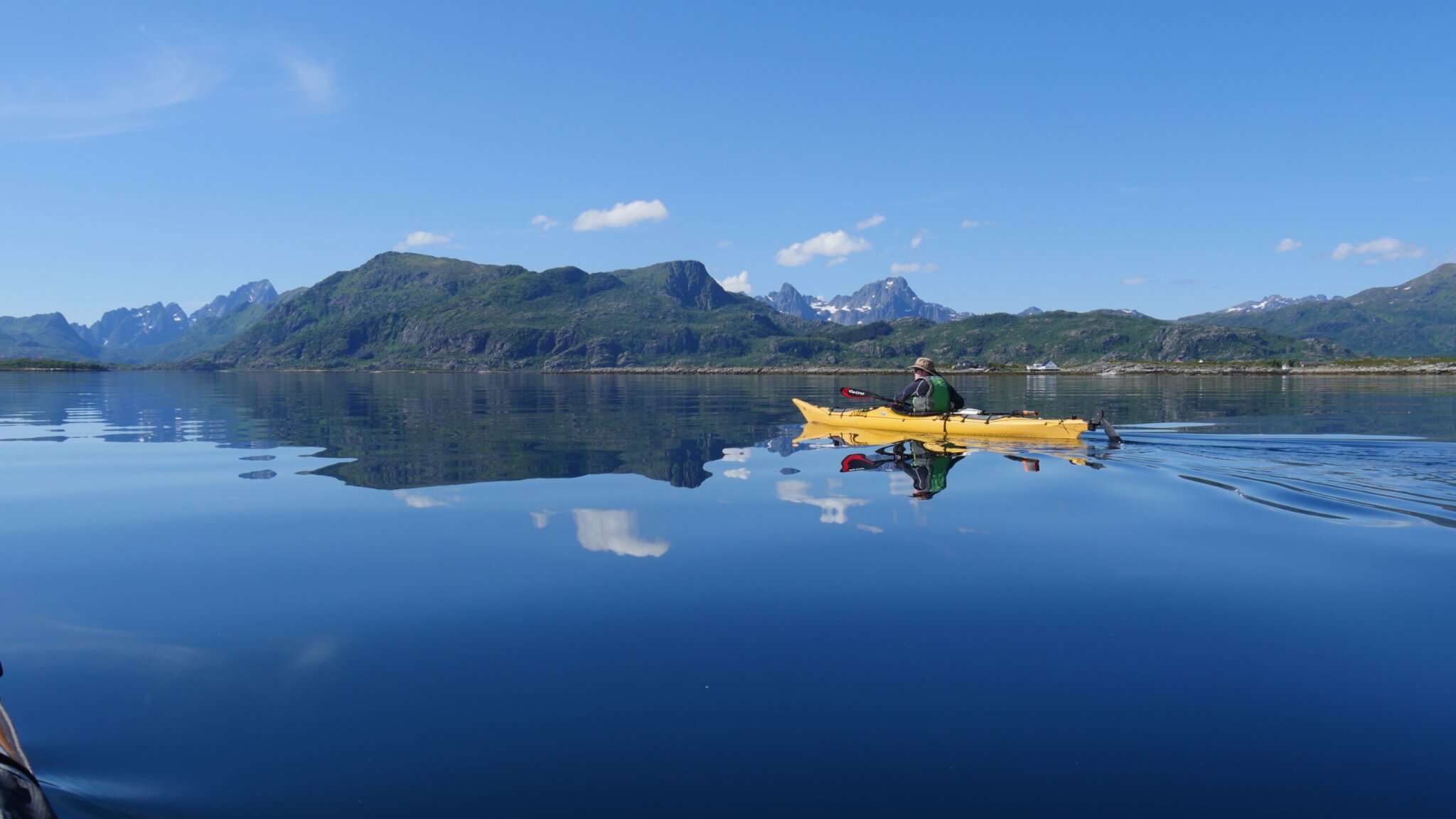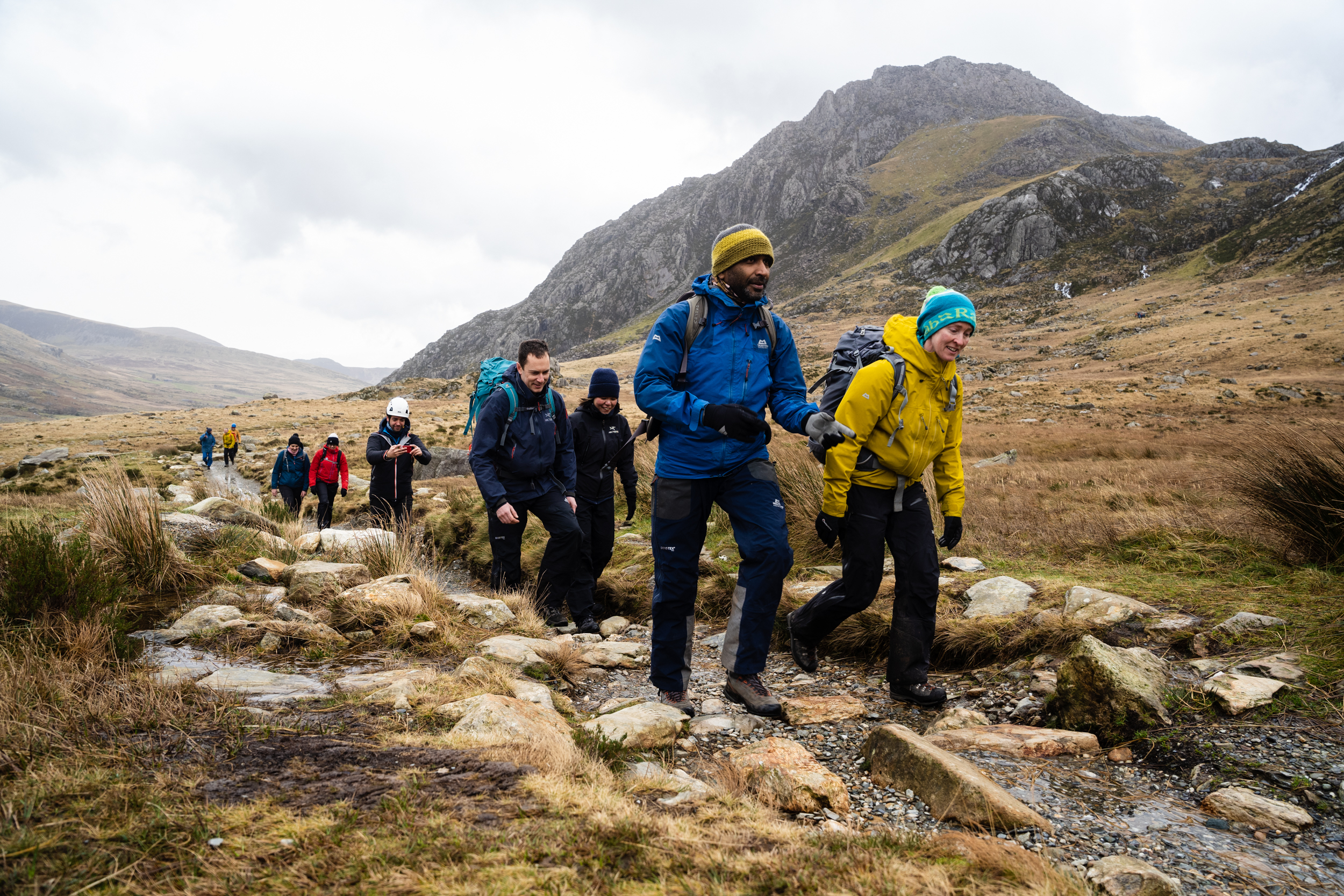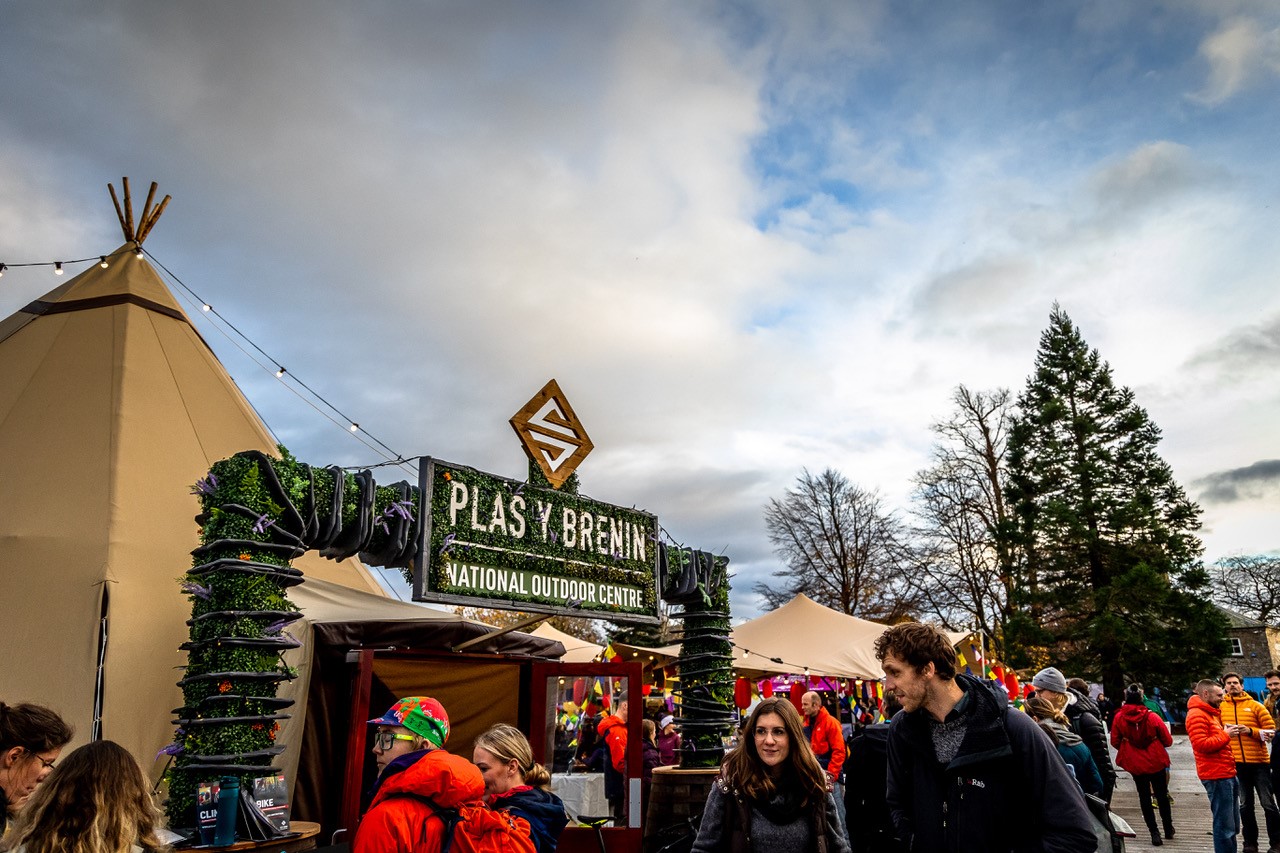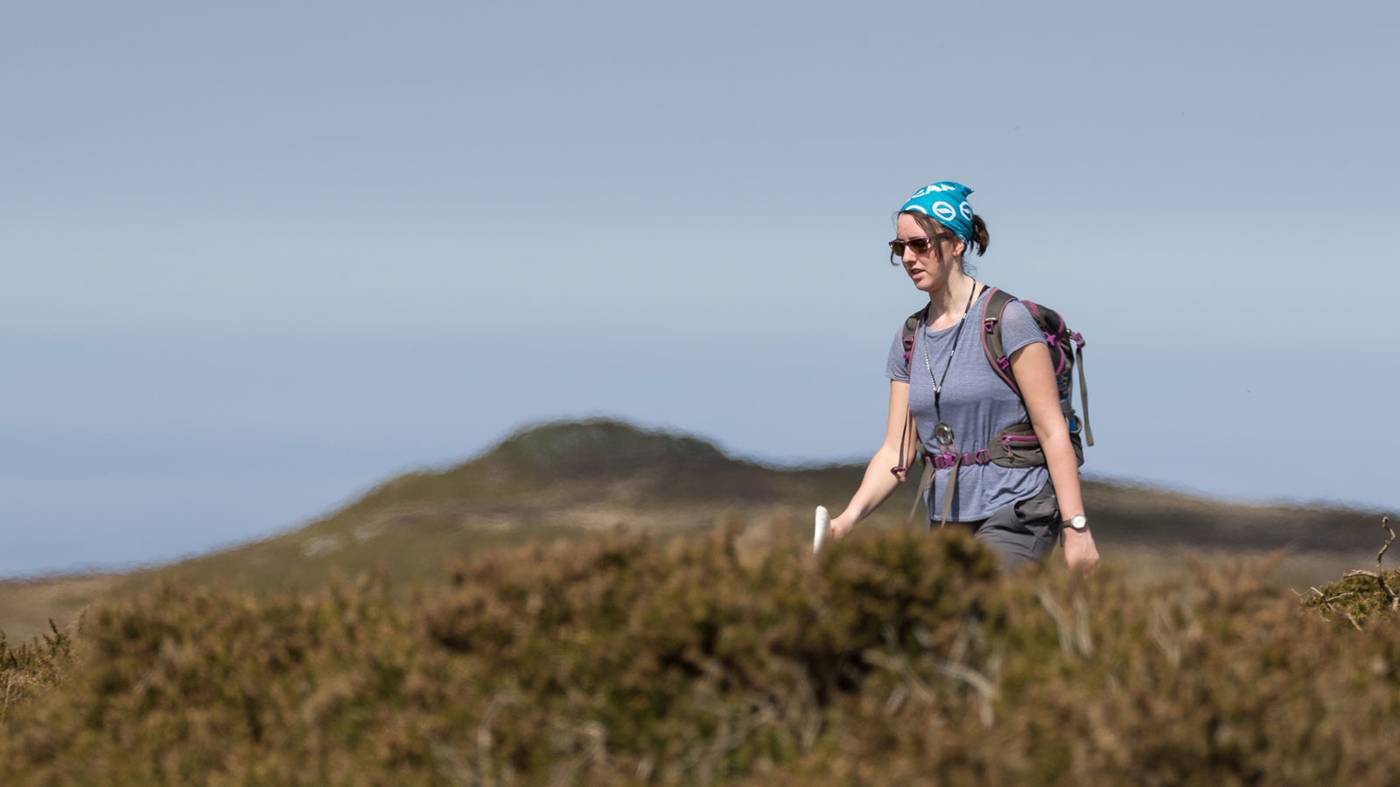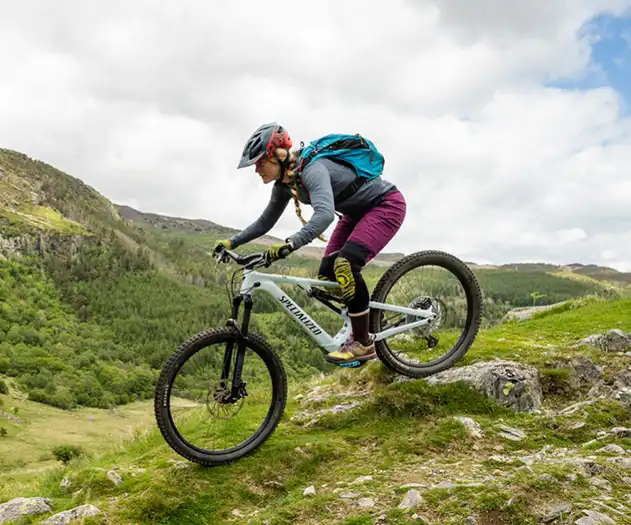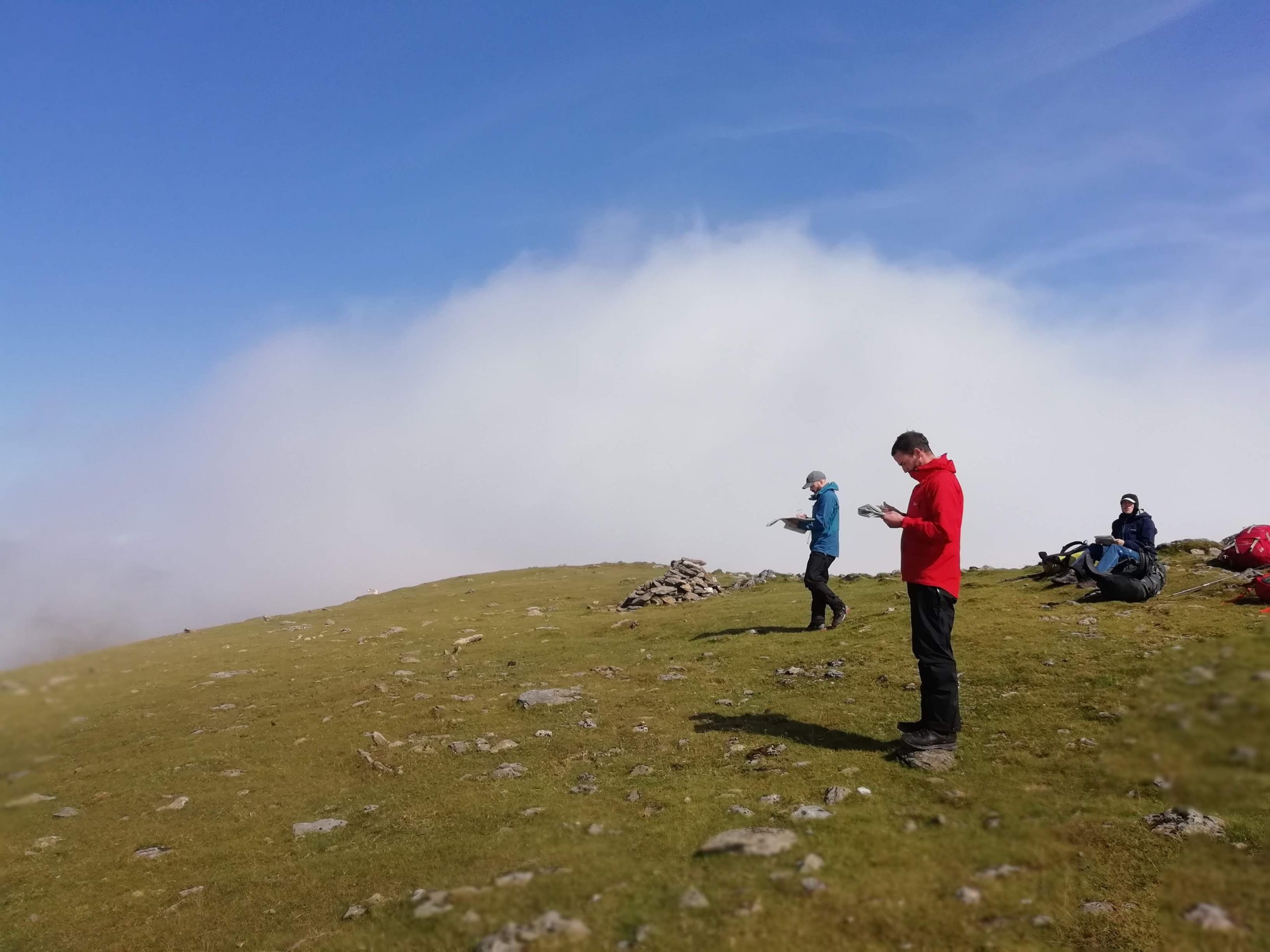36 Sea Kayak Expedition Top Tips you may not have heard before - learning takeaways from a sea kayaking adventure to Arctic Norway
Article by Dave Janes, a PYB instructor- written for Paddler Magazine
Following a month away in Northern Norway, guiding three successful 10-day sea kayak expeditions on the Lofoten Archipelago, I have spent time reflecting on the journey the participants went through. A year ago, we all embarked on a journey to go from paddlers to expedition paddlers. This involved many an evening spent online perusing maps and charts, discussing menus, lectures on Leave no Trace, devising our expedition philosophy, and most of all getting to know the people we would be sharing the highs and lows of expedition life with. During this time, we had three days together to consolidate our training and an opportunity to get out on a mini expedition overnight together to stress test our systems and processes. Most of all it gave us a chance to get used to living out of a 30cm diameter hatch in a sea kayak.

As a full-time expeditioner, coach and guide I have learnt the hard way and developed methods that mean I can be comfortable and able to thrive in the wilderness. Learning from mistakes, developing concepts and ideas into plans, and most off all organically growing my knowledge and skills. It is well known in coaching that independently learnt skills developed with mentoring and real-world testing are incredibly powerful.
With this in mind, I want you the reader to hear from the participants themselves. The team were mostly first-time sea kayak expeditioners, inspired to develop their skills as expedition paddlers and seek new adventures.

Post expedition I asked everyone the following question "what have you learnt that would be useful for someone in your shoes to know before their first sea kayak expedition? Not something I have coached you but something experience has taught you”. Here are the response in no particular order:
- Labelling my dry bags was helpful as I didn’t need to search for things and could pack up and organise things logically in terms of when I would use things.
- Boil extra water in the mornings to make a travel mug of tea/coffee for the day and also enough water for a flask of food e.g. soup/quick cook pasta.
- BA round my hand luggage rucksack to free up baggage space.
- Putting my water bladder on my deck so that was handy and a reminder to drink! It was too heavy to go in my BA but it was good to have the extra water on the hot day.
- I guess being patient and expect the unexpected especially with the weather, be prepared to be flexible with the route.
- Have a dry bag for "extras" in the morning - when packing, if you realise you forgot something that should go in a dry bag that's already closed, instead of opening it again and losing some time, it goes into the "extra" dry bag, which is the last one you close for the day.
- Making communal meals - it's nice to spend time with others, and it saves on gas, organisation and cooking time
- Communal coffee in a big pot.
- Making extra space by having the tent in a good dry bag behind the foot pegs
- When we got the chance to by stuff, adding fresh fruit like berries to drinking water, kept the berries fresh, made the water taste nice and the berries were a great addition to breakfast (generally rehydrated porridge type meals)

- I went with rehydrated meals for both breakfast and lunch. I tried quite a few before the trip to make sure I would like them. I was surprised how good they were.
- Wish I’d had one of the sun cream sticks rather than bottles of liquid much better for on the water.
- Having a well organised group nurse who had all the medication we forgot/ran out of. Thank you Louise.
- Being open to "expedition time", we didn't have day and night times or regular meal times. So there is a slight feeling of disorientation. Once I'd got my head around this everything is an opportunity!
- Paddle when the weather and tides are good. Eat when you’re hungry and sleep when you’re tired. Sort of takes you out of the 9 to 5 mindset. Invests you with flexibility.
- For fuel economy, only heat water to temp required for hot drink, doesn't need to boil.
- Fill Nalgene with hot squash, insulate with sock, it's a hot water bottle! Drink all of warm squash in the morning.
- Snack in BA, eat just it before landing at camp to give you some energy to set up.
- Using a tent peg as a hook to grab on to the stuff stuck at the end on the boat.
- Keep everything you are likely to need for a day’s paddling in the same accessible hatch, excluding snacks or hydration which should be in easy reach.

- Don't get sand in Dave's boat !
- Always pack a warm jacket (for stops), food & a stove (for lunch stops) and your tent, poles & pegs where they are easily accessible in your boat.
- M&S chai tea lattes were perfect, just add hot water . Delicious and easy.
- Don't rely exclusively on dried food: although nutritious it becomes tasteless and boring very quickly. Supplement it with fresh veg.
- Hand warmers to put in sleeping bag, warm sleeping clothes and a warm waterproof storm cag.
- Simplify as much as possible.
- Remember to pack loads of BA snacks and replenish every day!
- Ladies take 2 bras for paddling, if you are lucky enough to paddle cagless they will get encrusted with salt
- A pair of waterproof socks are great at camp for keeping feet dry and do look cool with sandals.
- Rotating say 3 simple meals during a trip works well and reduces waste.

- Google translate is your friend when shopping in foreign supermarkets – just because it looks like a tin of tuna doesn’t mean that it is!
- Packing the boat so your kit is accessible when you need it is extremely important to avoid repeated packing and repacking during the day.
- The choice of next-to-skin clothing is really important when wearing dry suits and cags etc when the opportunity to wash kit is limited. Natural fibres such as merino wool or bamboo work much better than manmade fibres.
- You will rarely camp on flat mown grass so your sleeping system will have to cope with rough and uneven ground.
- Being super organised with your food and kit means you don’t need to get up 3 hours before you are due to leave in the morning.
- Go with great people - everything else is just detail!
These are the weird and wacky top tips and handy hints that can only come from undertaking a real expedition and experiencing the highs, lows, challenges and celebrations from living out of a 30cm hatch in a sea kayak.
We had a bit of everything thrown at us. Days where it was too hot to paddle to a night spent holding tents down so they didn’t fly and everything in between. We didn’t just survive it, we thrived in our small expedition community, supported each other and learnt a hell of a lot about ourselves, each other, paddling and expedition life.

My philosophy for guiding, particularly international trips is simple. I am there to oversee safety and the long-term strategy of the expedition. I strive to prepare and train all the skills needed beyond paddling. Sharing expedition skills and experience I have honed over 16 years and thousands of nights camping in bizarre and wonderful places. In essence I like to coach expeditions rather than guide them. I have the best job in the world because I have the privilege to see all the toil and effort pay dividends when individuals become a team and an expedition becomes a holiday.
The expeditions were part of the new Plas y Brenin EMBARK initiative.
Expeditioners and Contributors: Deborah Reekie, Gemma Holloway,Alice Smith, Alice Lieutier, Louise Goodman, Lucy Bryant, Chris Smart, Katy Winterborn, Fraser Winterborn, Marion Baker, Pete Ogan, Phil Pascoe, Rachel Chamberlain, Alex Menniss, Christine Walker, Danie Bax, John Attree, Lucyjane Padgett, Kevin Walker, Hannah Rice, Patrick Cawley
Special mention should also go to fellow guides and coaches Lou Beetlestone, Annabel Finch and Oliver Sandeman

Want to up your paddling expedition skills even more? Check out our expedition symposium this autumn!
An Interview with James Bruton and Sam Deacon-Murray
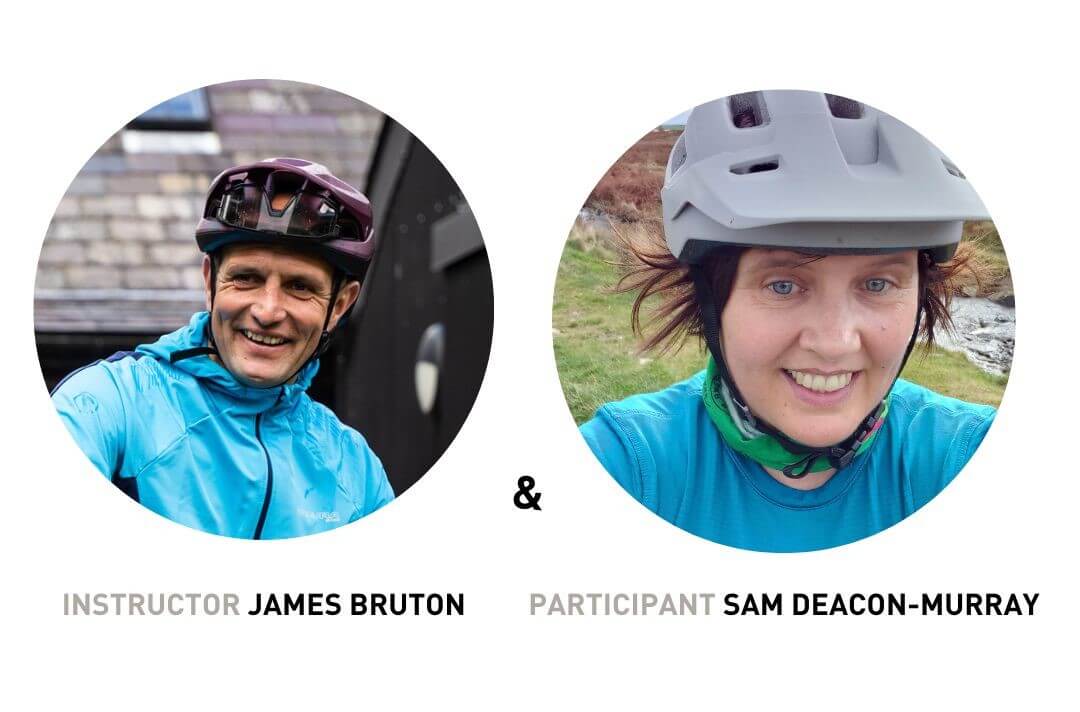
Join us for a Q&A with instructor James Bruton and participant Sam Deacon-Murray.
Sam, what was your first impression when you arrived in the morning?
Sam: It was very wet outside and I was very impressed with the diversity of the group, actually. I thought it was quite inspiring because we had a couple of older riders with us. And that was great.
It started off cool because we did some cornering which I'm not great at so I was looking forward to doing that.
I remember when you were thinking about doing the course you thought ‘this might be scary’. Was there an intimidation factor, or did that dissipate?
Sam: I wasn't sure about the course because I thought it was going to be a bit gnarly. But actually, the course description on the website said it's not for gnarly downhillers, the armour wearing brigade, so it was suited for me. So no, it didn't feel intimidating at all. It was great. It was really friendly bunch.

James, how did you decide on the venue or location?
James: Well, obviously when you wake up in the morning and the rain is beating on the Velux window above your bed, you have to find some motivation from somewhere. Being paid is one thing. He laughs. So yes, coming to a conclusion on where to go for a day, there's lots of things that go into the pot. Obviously a big part of it is the weather; this weekend it was pretty terrible. The ability of the riders or clients is a big one; and then what terrain you've got available to you. On the first day of a course very often I won't have a plan particularly, I’ll have some options. And actually, what was really nice was when the people turned up in the morning, they were at a higher standard than I thought they'd be so that opened up more options for us, which was really good. We stayed local on day one and a did bit in our skills area here. Then we got in the minibus, loaded up the trailer, and went to the local Gwydir trails where we selected some [trail] sections which sort of hit the targets of the client. The main focus of the first day was doing drop-offs on the bike and general trail riding skills. So yeah, that's the sort of process you go through. Once I got over the ‘it's really wet out there’ disappointment it’s also keeping their clients motivated; they weren't particularly keen on going out in the tipping rain, but once you're out there and you're wet, it’s great fun.
Sam, did you go into the course with goals?
Sam: Yeah. For me, I just want to get a bit braver and get more confidence at doing some downhill trails and doing them correctly, really, just to be a more efficient rider. So cornering was one of them because I quite often brake in corners. I probably go into them too fast which is something I learned yesterday, and gaining more confidence with drop offs as well.
Any objectives for you as the instructor, James?
James: I guess the objectives always are to provide the students, the riders, with what they want but also what they need. Sometimes that's not the same thing, and sometimes it is. So the objectives are to make it as safe as we can whilst hitting their targets. And obviously having loads of fun is key. We have lots of courses here at Plas y Brenin and that's just to get roughly the right people on the right courses. But ultimately what we do is take people from where they are and make them better. So that's the objective always really.
Yesterday was really rainy. How did the rain change the way you ride?
Sam: Oh, I love riding in the wet and so it was great. That's living in North Wales though isn’t it? Yeah, it did change the way I rode. It made me a little bit apprehensive going down single-track steep stuff. I was a bit scared that it might be slippy on the rocks but actually they weren't as bad as I thought they would be. After the first run, I definitely had a bit more confidence.

James?
James: Yeah, obviously makes the trails more slippery. And it brings another dynamic into the sort of risk management side of things. Part of doing any of these sports and especially mountain biking is learning to process the terrain as it's coming towards you and use your quick thinking to make a decision. Along the way, we also stopped a fair bit, looked at features, and talked about how we'd ride them. We want to have fun, but also minimise the risk in the wet conditions really. And I definitely took one for the team a couple of times taking photos and getting soaked with water getting splashed out puddles!
Sam, what did you learn on the course?
Sam: To ride with a lot more space between your legs and your bike, it definitely gives you more manoeuvrability. And trusting the bike to move a bit more as well. That definitely helped my riding. And to look up a lot more, actually.
James, what would be your parting advice to the participants on this particular course?
James: Certainly for a couple of individuals, the advice was have more confidence in their ability because they were good riders, just struggling a bit with confidence. Hopefully some of the things we did on the course, breaking things down, having a better understanding of the fundamental skills of mountain biking, knowing that you can, you know, revisit individual points as you're riding down the trail. The advice I give to people is to ride a trail that is well within your capabilities and then focus on one thing at a time to improve on. And also something that I think most of the group we had on the course said they didn't do much of was what we call sessioning bits of the tracks. So pushing up and doing it again. That's quite a good way of improving confidence; building skills. So we that was a key point as well.
Sam, what do you think that will stand to gain by taking a mountain bike course instead of just going out on their own?
Sam: Oh, okay. So I think there's always something to learn. And I think we will get, I certainly get, into bad habits when I ride. And also just to get more confidence; like James said, redoing bits of the trail. It was really good for our confidence yesterday. Definitely rode it better.
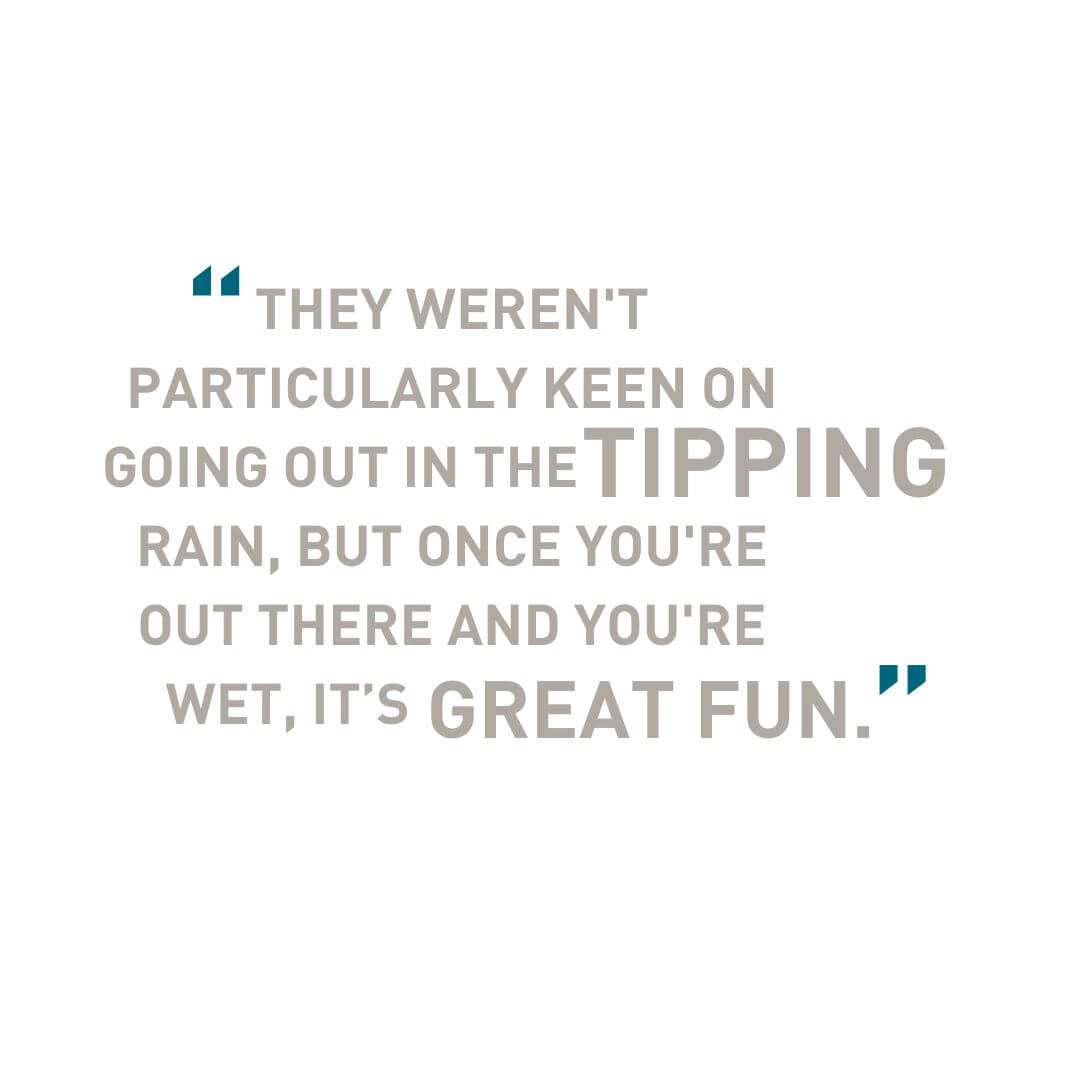
James: People often spend a lot of money on bicycles; bicycles are very expensive these days. And they think they can ride them, and some can, but often they could definitely benefit from some coaching. People spend all the money on the bike and don't put any money into learning to ride it. If they paid a bit of money to learn to ride the bike, got some coaching, they would be able to ride that very expensive bike loads better. And I do come across people that that think that falling off a bike is what you do every time you ride it and that in my mind definitely isn't the case. If you get some coaching on the fundamental skills, then that's a lot less likely to happen. You'll have more fun, hurt yourself less, and it will cost you less money to fix your bike when you break it.
SheClimbs Report: The Power of Community
Through gale force winds, workshops, and festivities, SheClimbs provided a supportive community for participants to access their limitless potential.
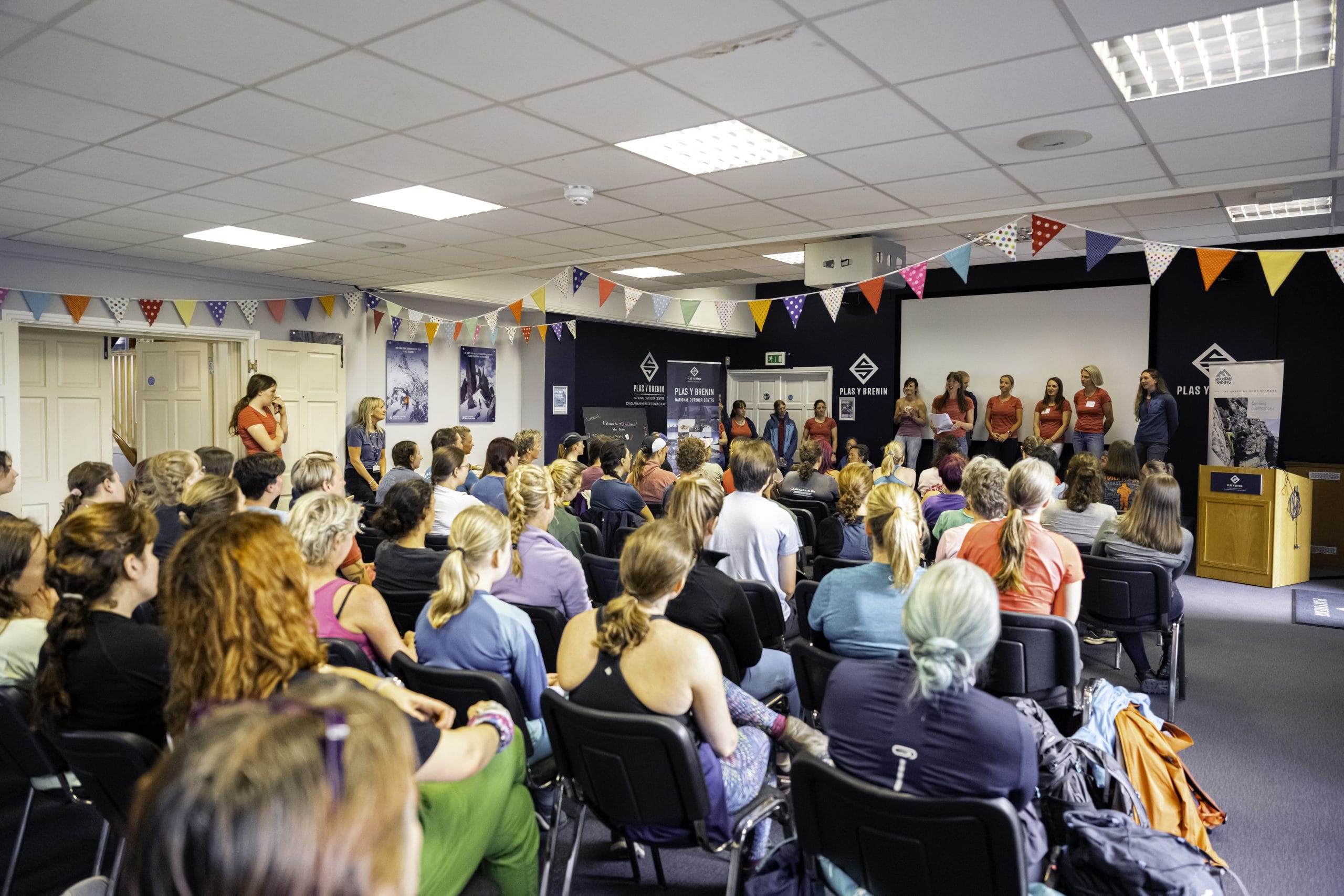
WMCI Emma Warren introduces instructors on Saturday morning ahead of workshops. Photo: Phil Hay
Bedecked with bunting and packed with skilled instructors, Plas y Brenin opened our doors to 65 women for the first SheClimbs Festival in our history.
Plas y Brenin Instructor and Winter Mountaineering and Climbing Instructor (WMCI) Emma Warren opened the weekend on Friday evening with a rousing get-to-know-you Bingo in the bar. Over half of participants arrived solo, setting a tone of sociability and courage that shone throughout the weekend in various workshops and activities.
As the building awoke on Saturday morning, a gale pounded Capel Curig. Overnight winds exceeded 50 mph and heavy rain doused the grounds. Local rivers swelled and local rock faces certainly did not present optimal opportunities for friction. Nevertheless, the instructors carefully selected climbing venues suited for the conditions and the women of SheClimbs donned waterproofs for the day. The participants rose to the challenge.
As it turned out, the day held some of the most fun and interesting workshops of the weekend! Indoor to Outdoor Climbing Workshop headed to bottom-rope on a wavy piece of rock called Craig Y Tonnau, where they reviewed belaying, tying in, and climbing commands before getting stuck into climbing. Meanwhile, the Introduction to Sea Cliff Climbing headed to Crinkle Crag on the coast.
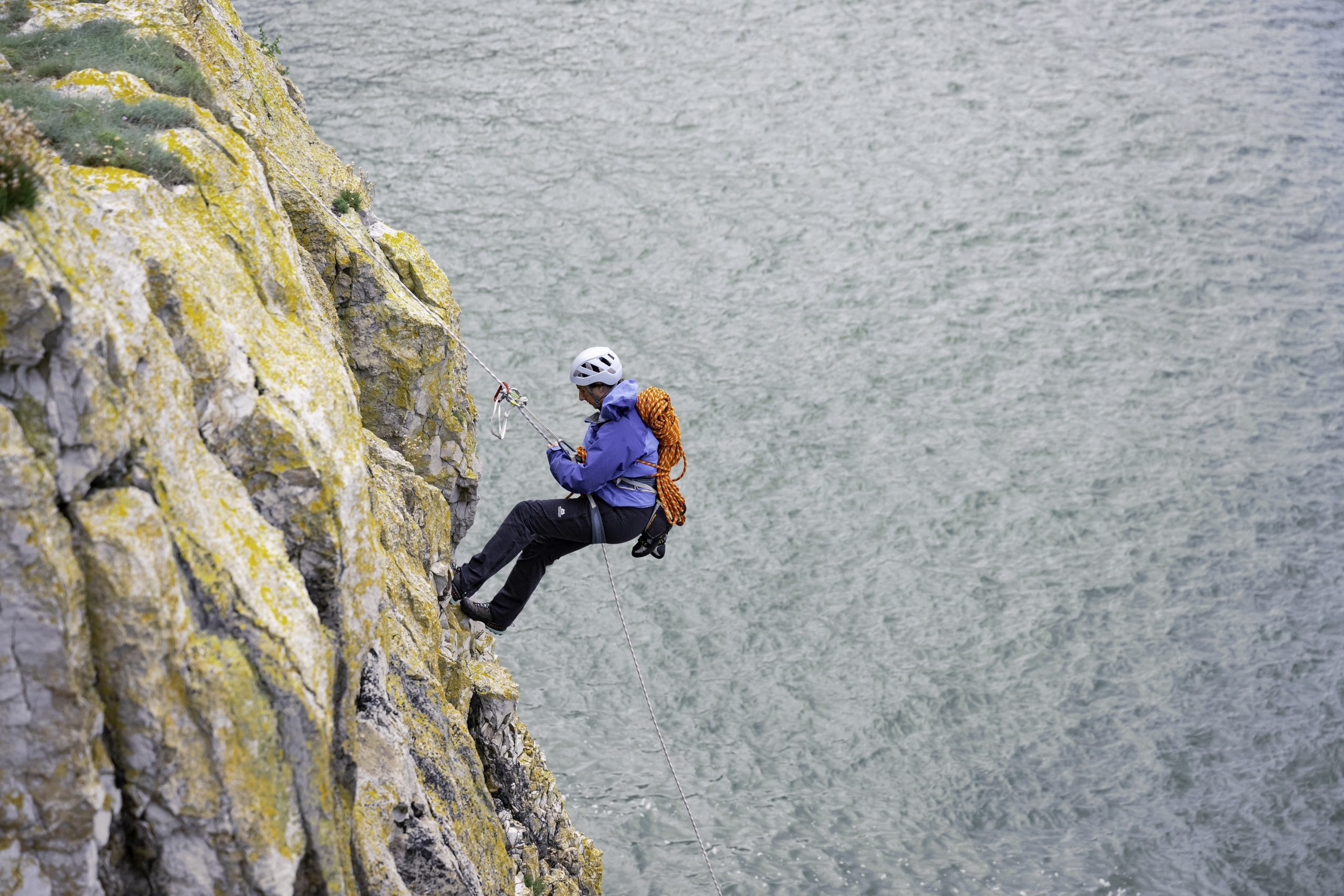
SheClimbs participants abseils into a climb on Crinkle Crag. Photo: Phil Hay
Introduction to Climbing headed to Lion Rock to try their hands at moving on rock and learn how to keep each other safe. Mentored by Libby Peter and recent MCI Emma Kershaw, scramblers dispersed into the wet and rainy Ogwen Valley while Learn to Lead and Multi Pitch Climbing Workshops took to Tryfan Bach to practice placing gear, belay transitions, and more. One participant was heard saying she would rather be out climbing in the rain on Tryfan Bach than on a warm beach with a cold beverage! Mental Training with coaches Danielle Griffith and Juliet Scott and Movement Workshops with Emma Twyford and Dave Evans stayed dry in the climbing wall while Improvised Rescue took to the canopy, using in situ bolts to learn ascending a rope among other things.
As the evening dried out, each workshop trickled back into Plas y Brenin for tea and cake with a browse around the Brand Meet and Greet with colleagues from Mountain Equipment, Scarpa, Deuter, Joe Brown Shops, Cotswold Outdoors, Ogwen Valley Mountain Rescue, Mountain Training, and Petzl. It was an opportunity to try on and discuss gear, build connections, and meet the athletes.
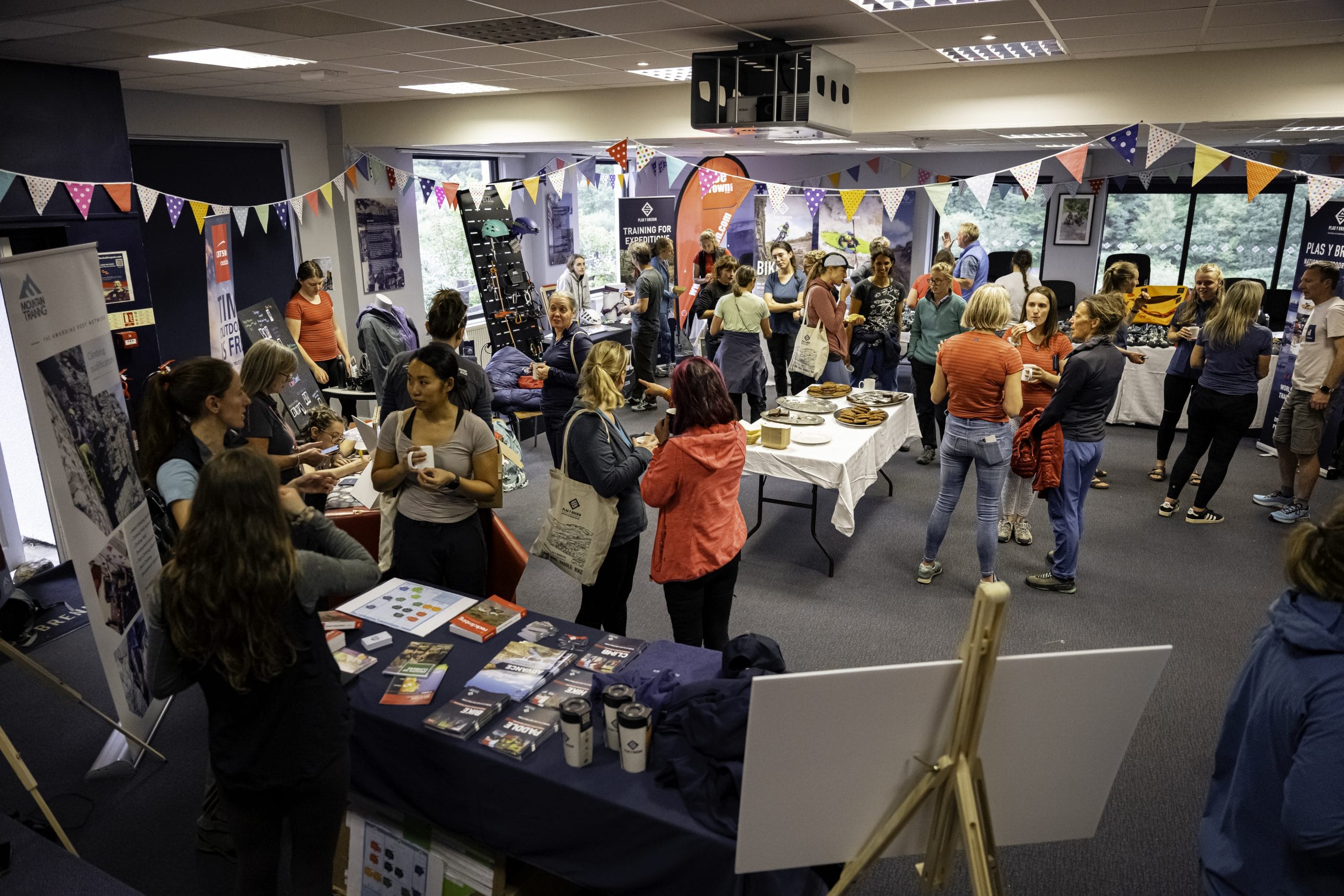
Mingling at the Brand Meet and Greet with tea and cake. Photo: Phil Hay
After dinner, folks flooded into the lecture hall for a raffle benefiting the Mountain Adventure Fund (MAF). The MAF funds young people without financial resources to get onto outdoor courses here at Plas y Brenin. We were successful in raising over £500 for the Mountain Adventure Fund, which will fund two participants for a week long course. Prizes included a hut stay from the Pinnacle Club, coffee from our friends at Tiki Tonga Coffee and Caban Cyf, Scarpa climbing shoes, a Deuter backpack, a Mountain Equipment sleeping bag, and a Plas y Brenin private instruction day.
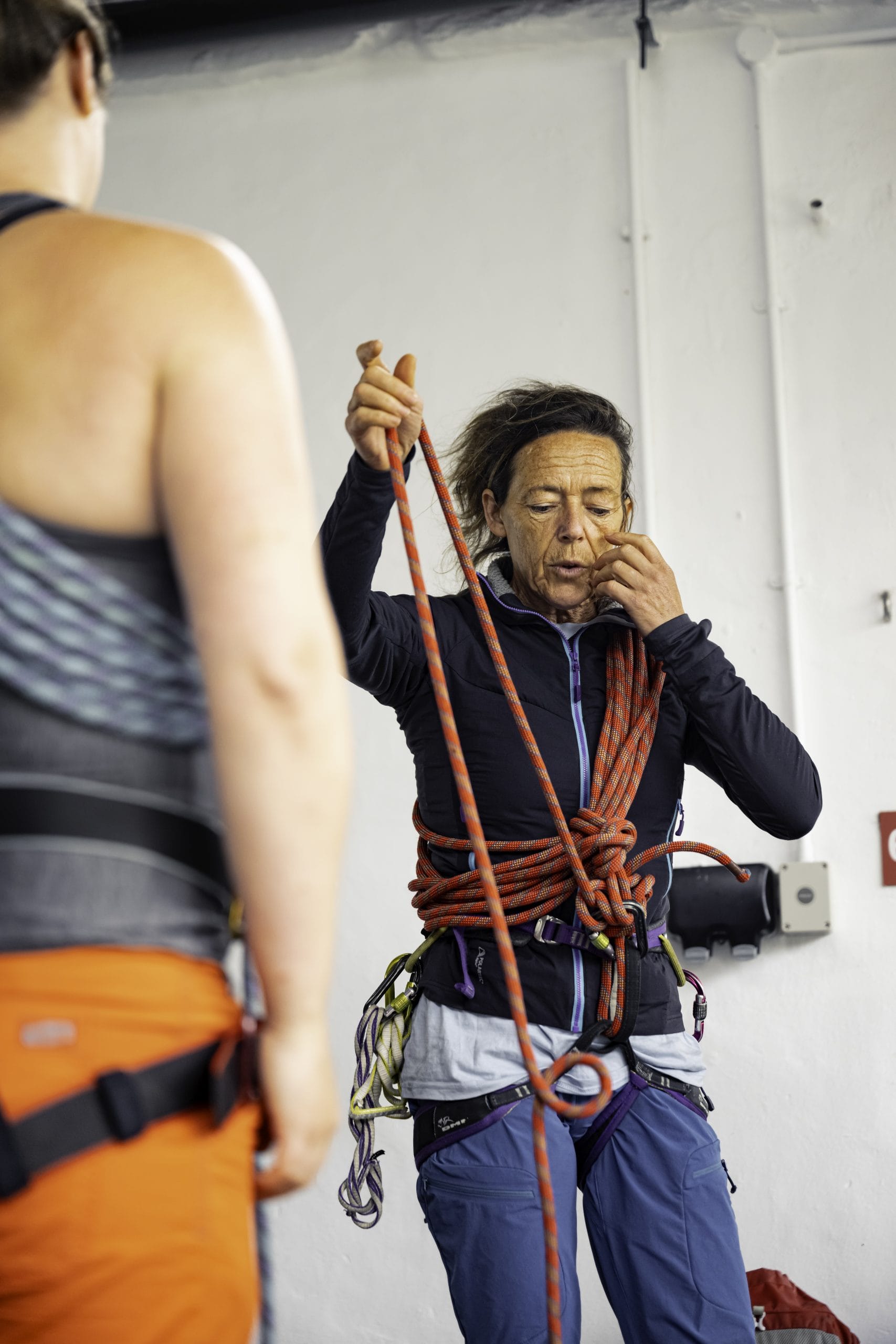
Climbing legend Libby Peter demonstrates a mountaineer's coil during her scrambling workshop. Photo: Phil Hay
The buzz in the room only grew when Carole Feldman and Cat Forster took to the stage to share about their journeys to becoming Mountaineering and Climbing Instructors (MCI). The MCI is an esteemed award that demonstrates competence in complex summer mountain environments. It is accredited by Mountain Training and gains its holders access to the Association of Mountaineering Instructors (AMI). Cat described the bond she and Carol made working hard to attain their qualification; ‘’These friendships that you make when you’re really pushing yourself they become really really important and they stay with you.’’
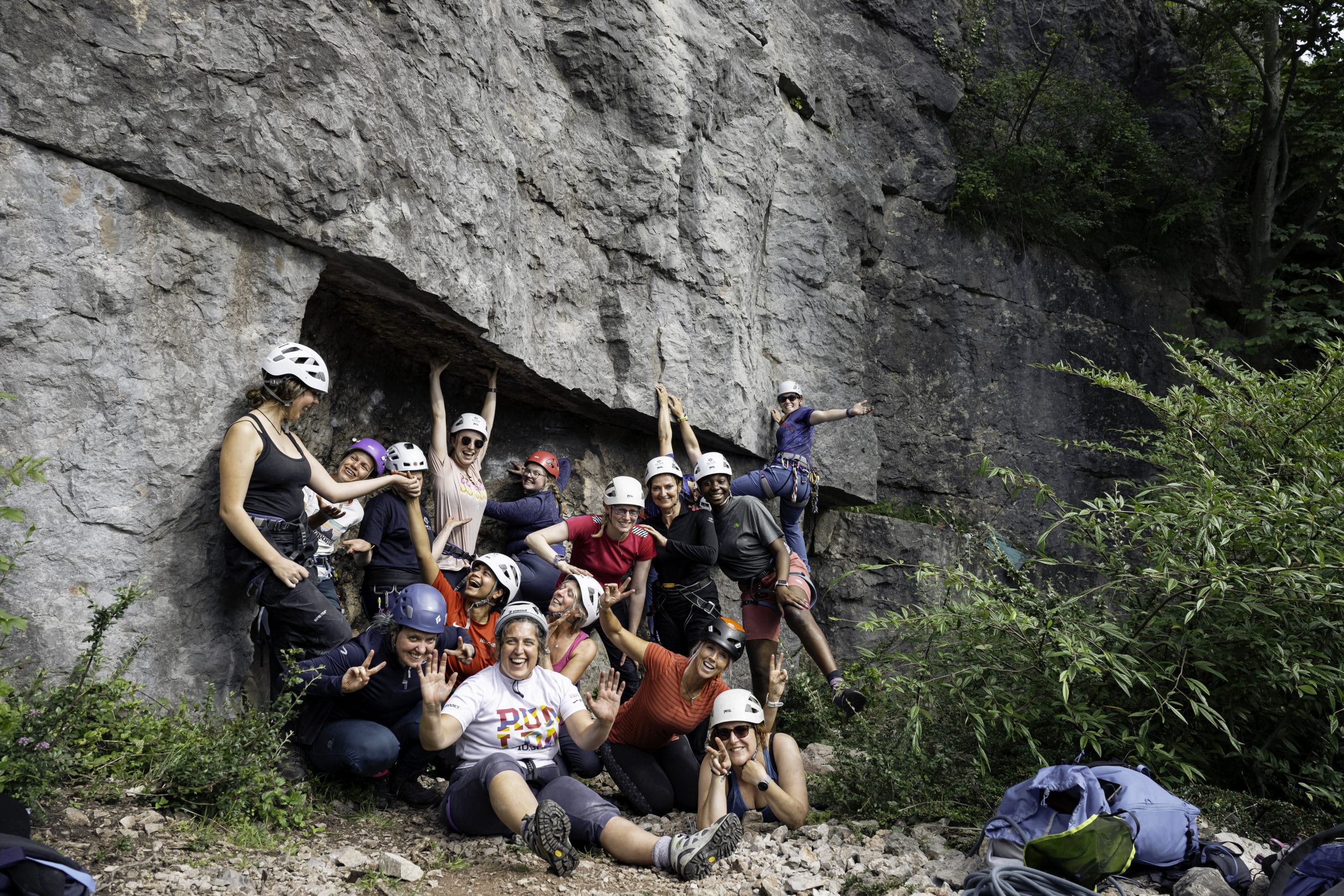
Introduction to Climbing workshop making bonds and pushing themselves. Photo: Phil Hay
Saturday evening continued on with a Q&A with climber Rachel Pearce, who since 2019 has improved one E-grade per year (an astonishing rate of change for any climber). She challenged us to climb for the love of it rather than to meet expectations. Chasing grades or working to impress people with your clout, she argued, were not sustainable approaches to climbing. Her remarkable journey was based on her love of challenge and adventure. Find what you love, she suggested, and do it.
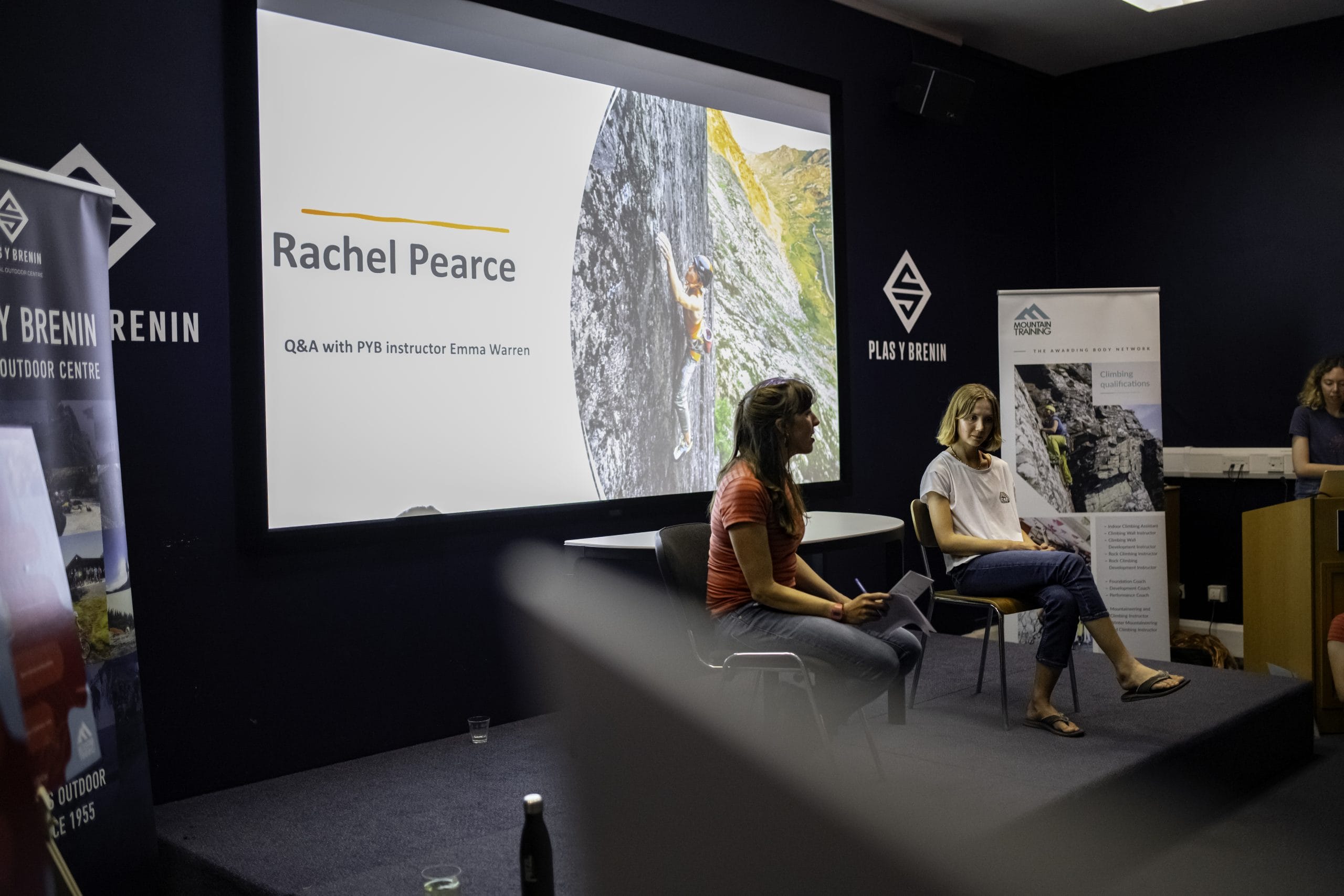
WMCI Emma Warren interviews Rachel Pearce at Plas y Brenin. Photo: Phil Hay
If you have ever gotten in a fight with a crack climb, Harriet Ridley’s talk on her journey to crack climbing was an eye opening instruction in humbling yourself to the task. She presented the 10 steps to crack climbing, #1 being: protect your hands! Photos of red sandstone in Indian Creek and sparkling quartz crystals in the Alps certainly inspired even the reluctant in the crowd.
The final event of the evening solidified a lasting sense of inspiration as we watched Emma Powell ascend ‘Guardians of the Underworld’. At 22, she is the first British woman to climb a D12 route. It was thrilling to watch as she cut her feet and swung on precariously delicate moves, working her way upward by wrapping her foot around her arm to bring her center of gravity closer to the wall.
Thoroughly knackered and content, participants drifted to bed in preparation for another day of learning, improvement, and connecting over climbing.
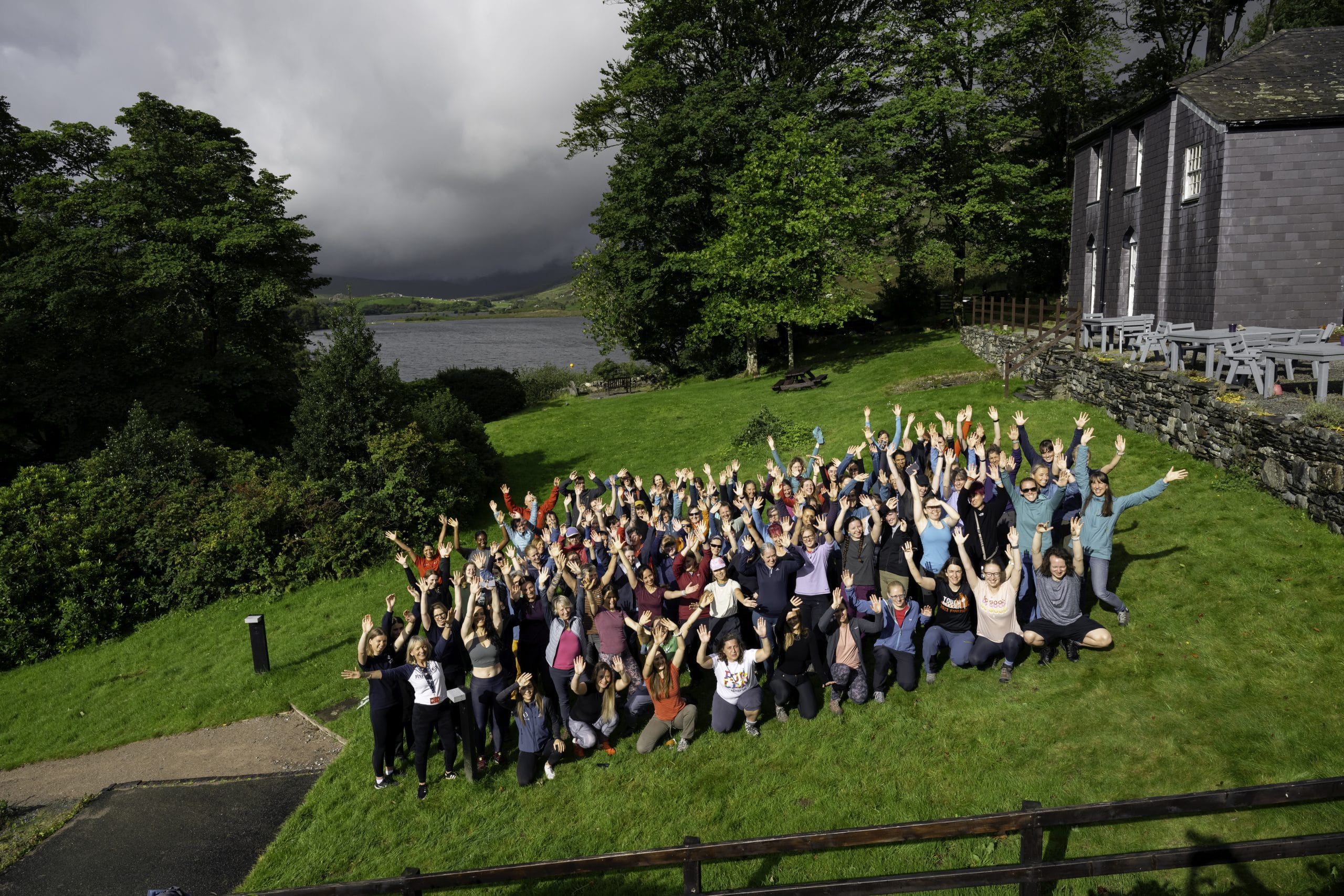
The SheClimbs 2023 Community. Photo: Phil Hay
By Sunday evening, it wasn’t just climbing skills that had grown; friendships, confidence, and the spark for adventure had taken seed somewhere between workshops, shared meals, and good conversations. The challenge now is to nurture those seeds in the mixed soil of the larger climbing world, but as Emma Warren reminded us in her opening talk,
‘’If you can see it, you can be it.’’ And this weekend, we could see it.
REGISTER YOUR INTEREST FOR NEXT YEAR: SheClimbs 2024 (jotform.com)
Words by Sadie Sarvis, Plas y Brenin Content Creator and lover of all things climbing
A Breath of Fresh Air for Leading Aerospace Company’s Employees: AerFin Corporate Retreat at Plas y Brenin
After launching our exciting Corporate Retreat offering in the heart of Eryri (Snowdonia) National Park, we were delighted to welcome over 40 employees from a leading aerospace company in January. AerFin, based in South Wales, is a global specialist in providing cost-saving aftermarket support solutions to the aviation industry.
AerFin's CEO, Simon Goodson, said: ‘We're here to discuss how we kick off 2023, spend time getting to know each other, do some leadership development planning, and wider planning of how we will execute 2023.'
With Plas y Brenin being nestled amongst mountains, lakes, rivers, and coastlines, we can easily take teams to challenging places and offer real experiences to build resilience, teamwork, and trust. Our Corporate Retreats are a starting point for leaders who are ready to take a fresh look at their organisation and consider how putting people first can create a stronger and more profitable business.
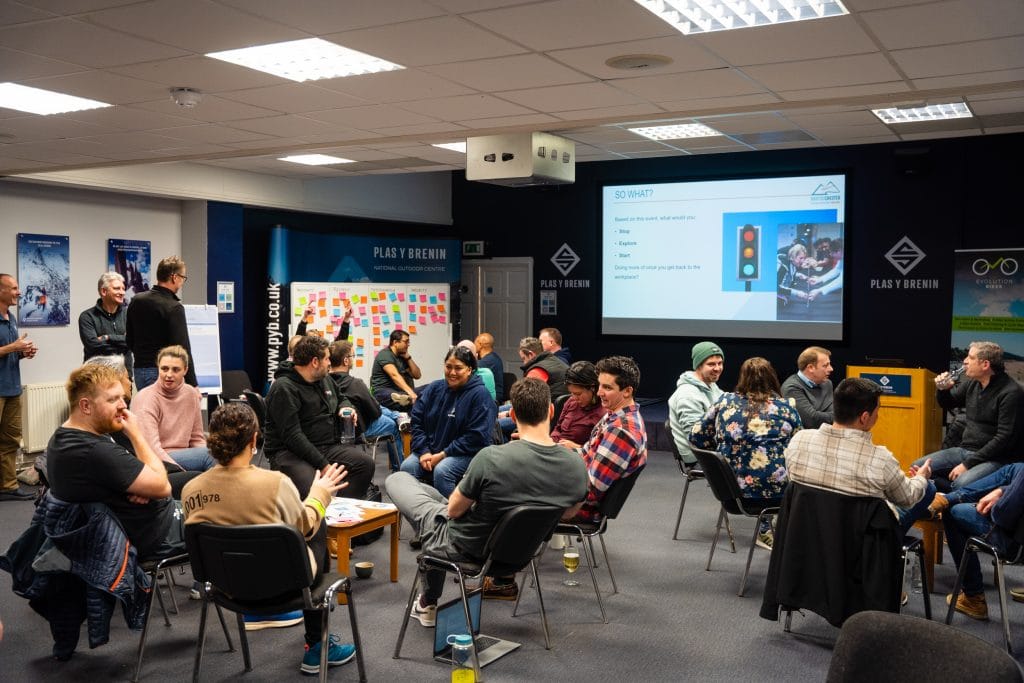
A Program With AerFin's Objectives at Its Heart
Every company is different, meaning our retreats are entirely bespoke. CEO, Simon, shared AerFin’s long and short-term goals through a free consultation with our experts. This allowed us to create a program that used the outdoors to meet AerFin’s needs.
Martin Chester, International Mountain Guide and AerFin’s Retreat Organiser, said: 'We could have done a lot of contrived leadership development and team building exercises, but there’s a risk of that being artificial or cheesy. We, therefore, wanted to take the team out of their comfort zone and do some exciting activities in real places, letting all the good stuff happen organically. Plas y Brenin was the obvious choice.'
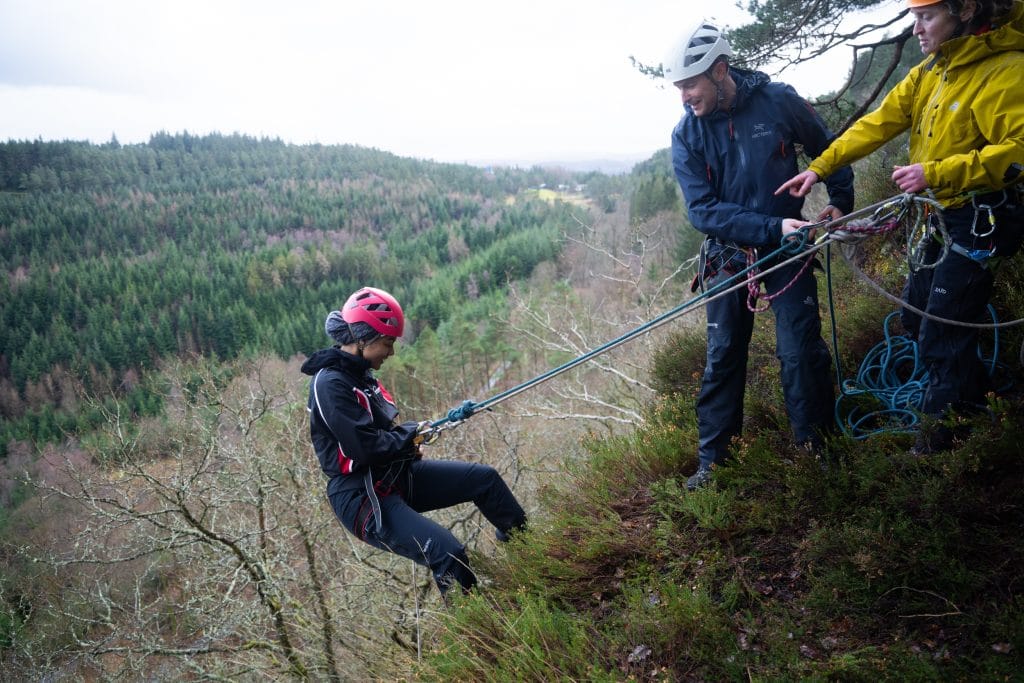
Over the course of the three days, we provided various indoor and outdoor activities to test the AerFin team. This included team challenges to aid teamwork and communication; an abseiling session to enable both teams to work together; a review of the abseil activity against AerFin's principles; indoor climbing and bouldering to build trust; and an inspirational team walk and scramble in the mountains to explore leadership.
A member of the AerFin, said: 'Yesterday, you wouldn't have got me near an abseil tower, but I'm pleased to say I achieved it! I found it interesting and terrifying, but I feel fantastic now. It was a really good experience!'
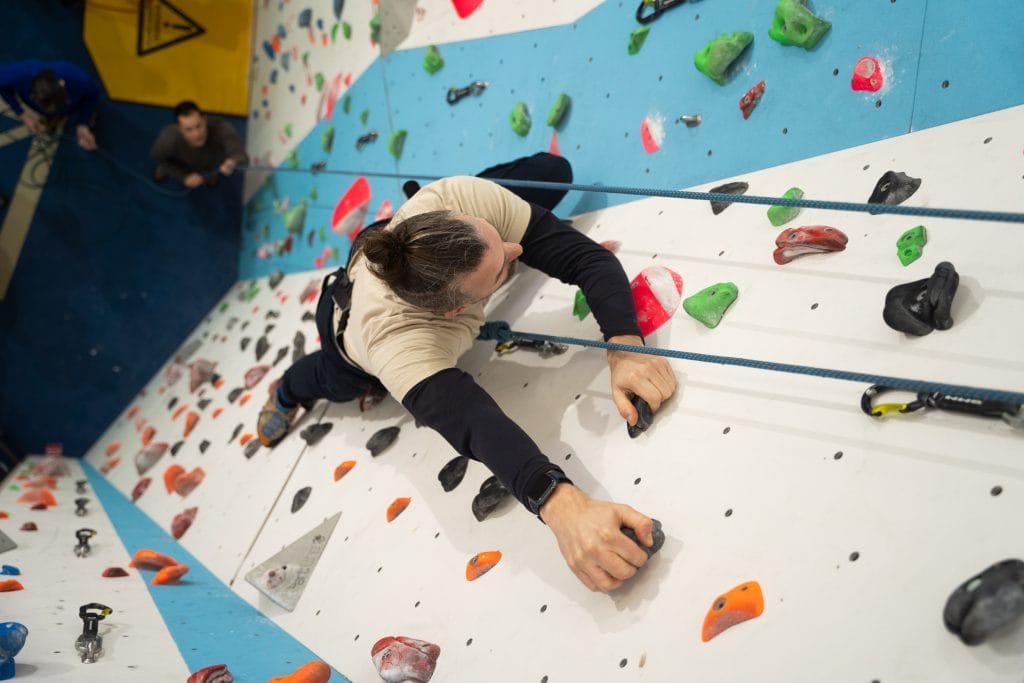
Amidst the activities, we included a series of talks to motivate and educate the teams. This included an inspiring Leadership Talk and Q&A from Deputy Chief Executive Officer at Vertical Aerospace, Harry Holt. We were delighted to welcome Harry to our Main Lecture Room:
'Laying out the direction for your team is pretty foundational. If you don't do that, you are not going to get far. But, if you are able to inspire your team to give more of themselves than they would normally give, then give that discretionary effort. That is the key to unlocking truly extraordinary levels of performance and subsequently, achievement.'
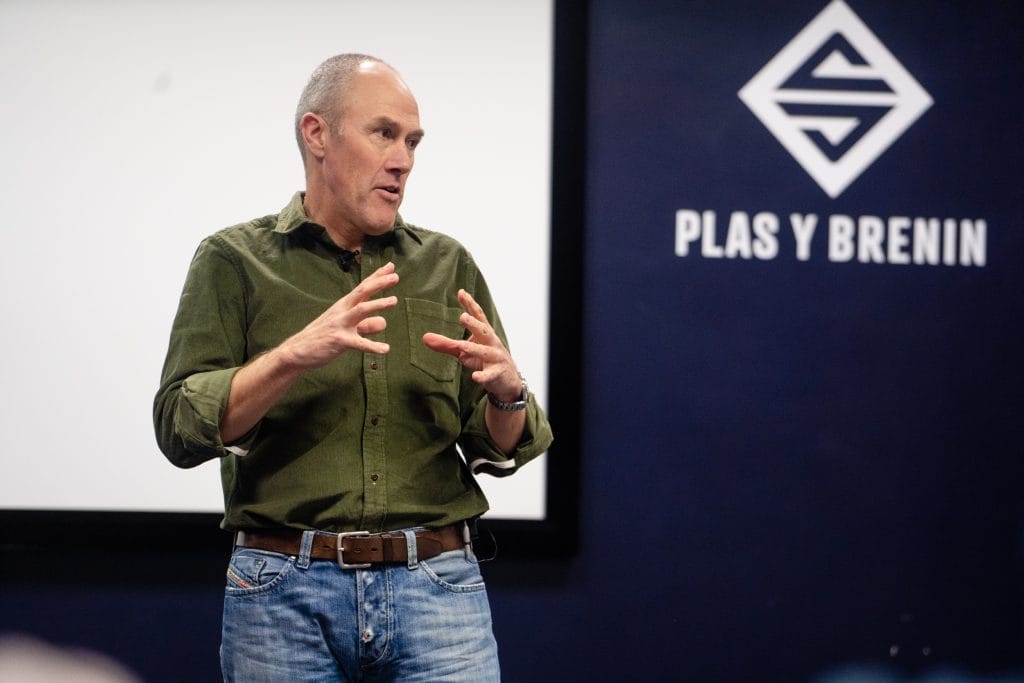
Our Unique Offering
When arriving at the centre, Simon voiced: 'My first impressions of Plas y Brenin were the stunning beauty and serenity of the place. After having a tour, I saw the outstanding facilities and got to meet the incredible staff.'
Our range of facilities are what us make us truly unique. Within a retreat package, we provide everything you need to make your stay convenient and comfortable. With our lake, on-site accommodation, spacious lounge and bar area overlooking Yr Wyddfa (Snowdon), hearty meals, indoor climbing wall, rolling pool, stores, drying room, and stunning venues on our doorstep, we have everything you need all in one place.
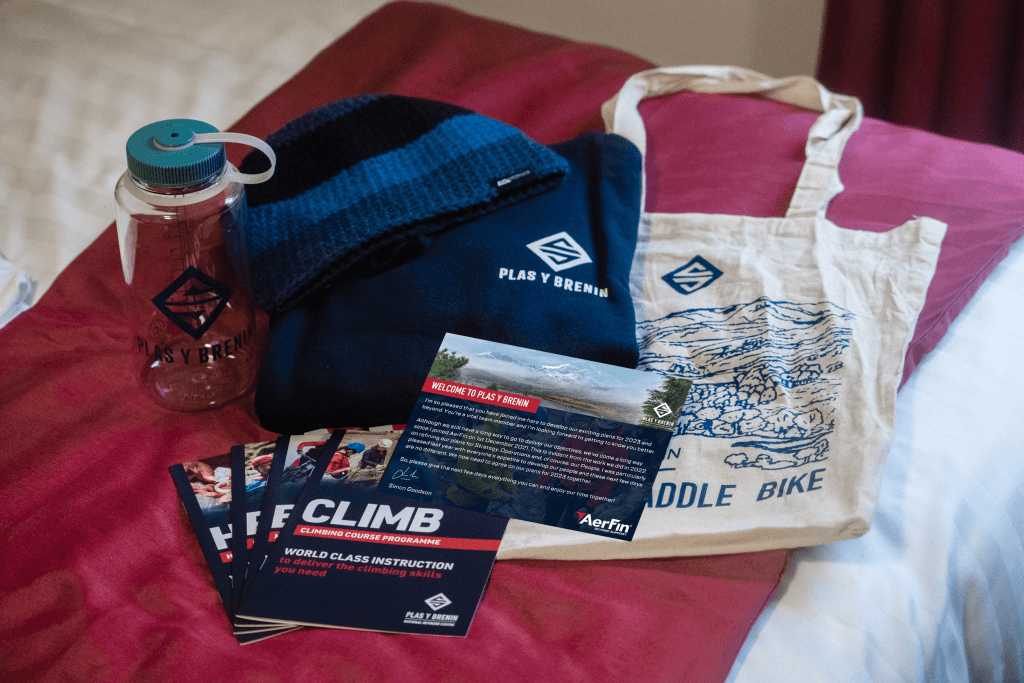
Our world-class instructors also offer a unique experience. Simon voiced: 'The number one comment from the team was about the quality of instruction and the ‘quietly supportive’ leadership. They all felt incredibly looked after and really appreciated the support'.
The Result
Pete Catterall, Plas y Brenin’s Head of Instruction, said: 'We loved working with AerFin and watching them having strategic meetings to then intersperse with their outdoor activities was fantastic. We saw enormous amounts of trust being built between the teams, where you’ve got one of the Senior Managers holding the rope of another Senior Manager above a huge drop on their abseil. The team's bonding, resilience and communication were brilliant.'
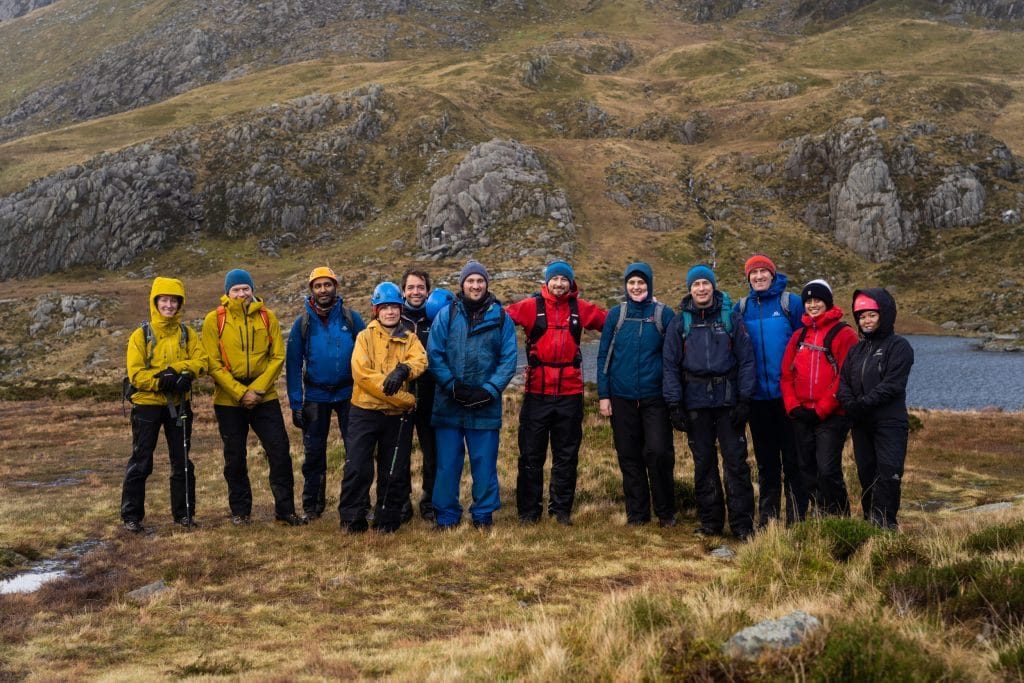
Are You Ready to Advance Your Team?
We are so excited to see this area of Plas y Brenin grow. It's fantastic that companies are now recognising the importance of giving employees the opportunity to connect away from the office. A focus on employee mental and physical health is key to any corporate strategy.
Would you like to bring your team on a journey at Plas y Brenin? Download our Corporate Retreat brochure today or get in contact with our team by calling 01690 720 214 or emailing bookings@pyb.co.uk.
Photo Credit: Jake Webb Photography & Videography
10 Tips for Staying Warm on the Water
Being cold sucks! There’s nothing more miserable than the sting of the cold hitting your hands making your fingers throb or being so unbearably cold that you just can’t focus. Here are 10 top tips for staying warm on the water, from our Senior Paddlesport Instructor, Chris Evans:
I’ve been on the sea in perfect flat calm northerly winter conditions, bringing little to no wind and breathtaking views. I could take this all in because I was warm enough. I’ve also had days on the water that were memorable for the wrong reasons, I didn’t want to be paddling because I was painfully cold due to incorrect layering, fuel or neglecting extremities.
Here are a few suggestions to avoid the sting of the cold and enjoy paddling in all seasons.
1 Get your layering right!
Do you naturally run hot or cold? More layers if you run cold, fewer if you run hot.
2 Don’t forget your feet!
It’s our natural connection point to the earth underneath us, so make sure there’s adequate insulation from the ground temperature as well as enough ankle and foot support for the environment.
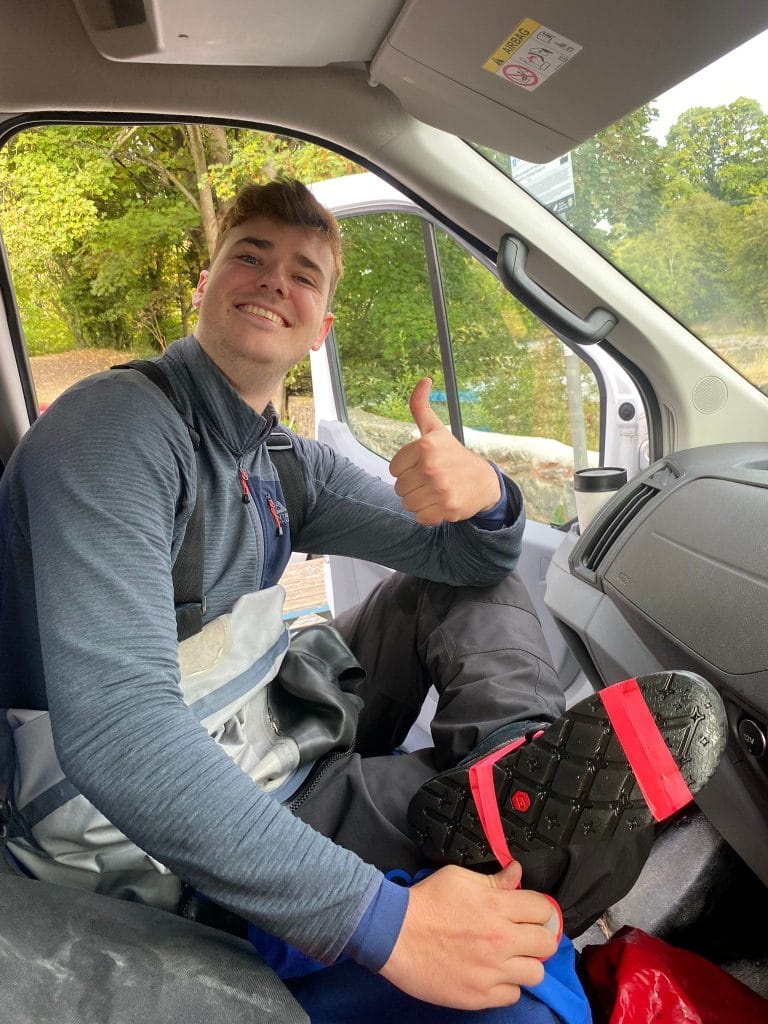
3 How much are you doing during your paddling session?
A sprint-around, training session will need fewer layers than a social float. I find I need more layers when coaching than I do when personal paddling for example, as I spend more time sitting around.
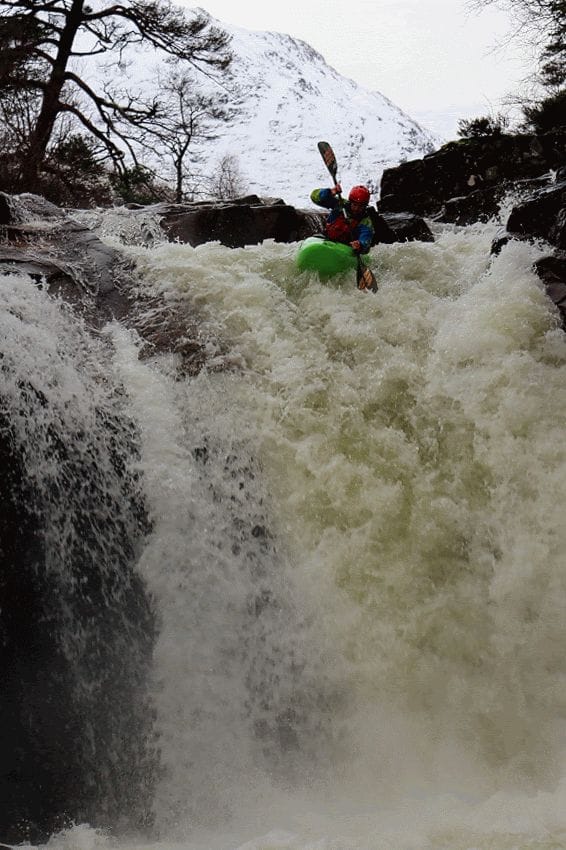
4 Fuel up properly
On the coldest of cold days, think about hot food and drink rather than the buoyancy aid Mars Bars (other confectionery is available) that may have frozen. I’ve heard horror stories of dental work needing doing after a frozen BA chocolate bar! This could either be for when you’re off the water (only out for a short period of time) or in flasks with you.
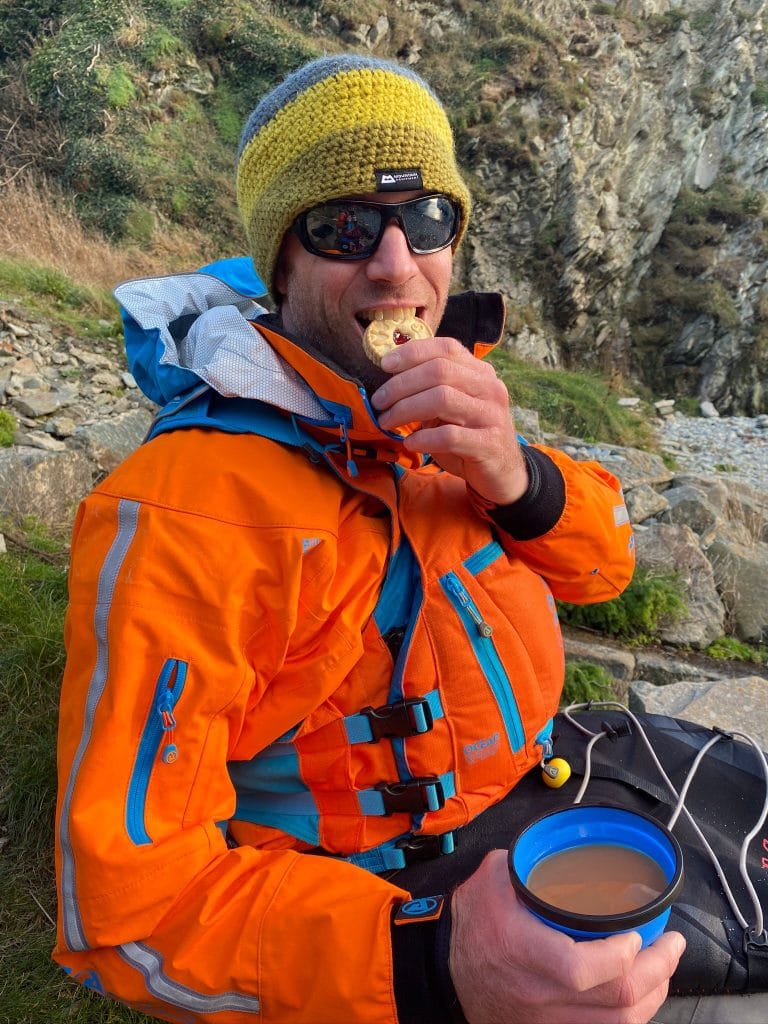
5 Stop in sheltered spots
An obvious one (however I do still see it), is it’s colder in the wind than it is out. Finding that sheltered spot to have your above-warm lunch is always a winner (under a canoe works quite well).
6 Keep the blood flowing to the extremities
We’ve all felt the loss of dexterity in digits due to the cold and have all then tried to do a simple task like opening a zip. That stinging sensation can be avoided with simple movements of the extremities to minimise the loss of blood flow. ‘Shaking out the cold’ or ‘playing the piano’ works quite well.
7 One way of keeping the dexterity in your fingers is to use gloves or pogies
My preference here is pogies, as you can keep a natural connection and feel to your paddle with the pogie creating its own ecosystem. I do find them clumsy on the river, so I slide them into the middle of the paddle when it gets technical and put them on when the river chills out.
8 A helmet with holes in is much colder than one without, if yours is one with vents then think about a neoprene skull cap
Woolie hats when a helmet isn’t needed are a must on cold days and they drown out the mocking calls of the stubborn who believe that they don’t need pogies….
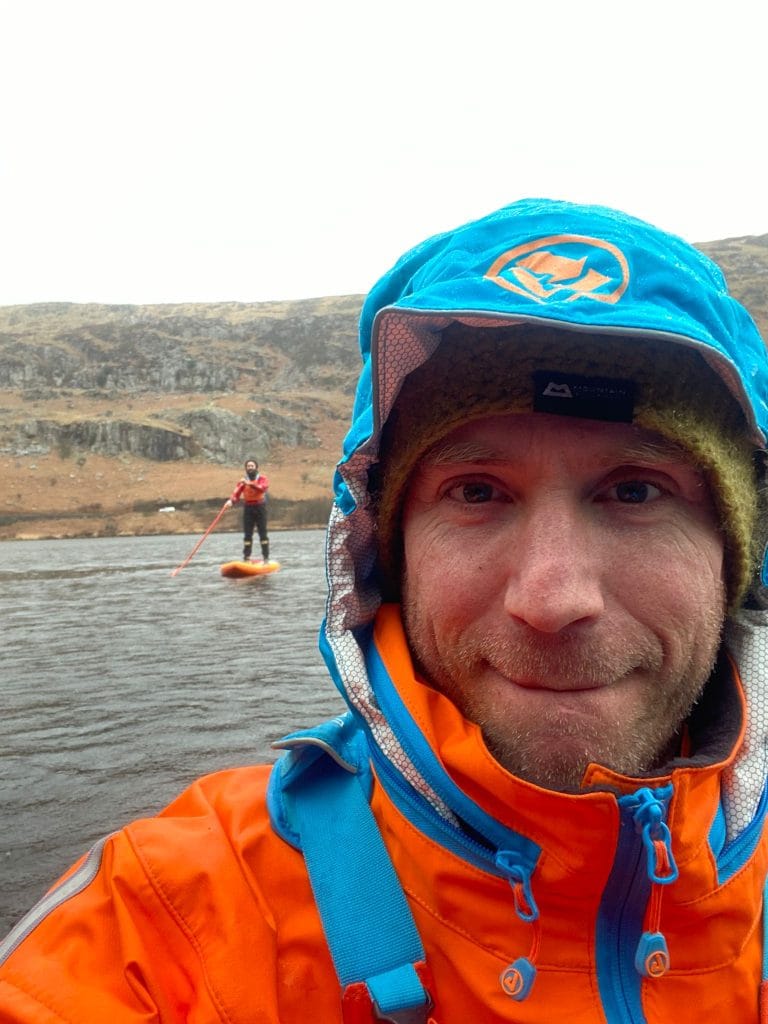
9 Get changed in the warm and dry
Putting on at least your thermals at home means you’re minimising the time spent changing in car parks, arguably the hardest part of paddling in cold conditions.
10 Carry spare layers if you’re out for the day
Consider a go layer and a stop layer. Go layer is one to add if you’re still moving and the stop layer needs to be substantial enough to keep you warm if you have to stop for an extended period of time. Boat fixing for example.
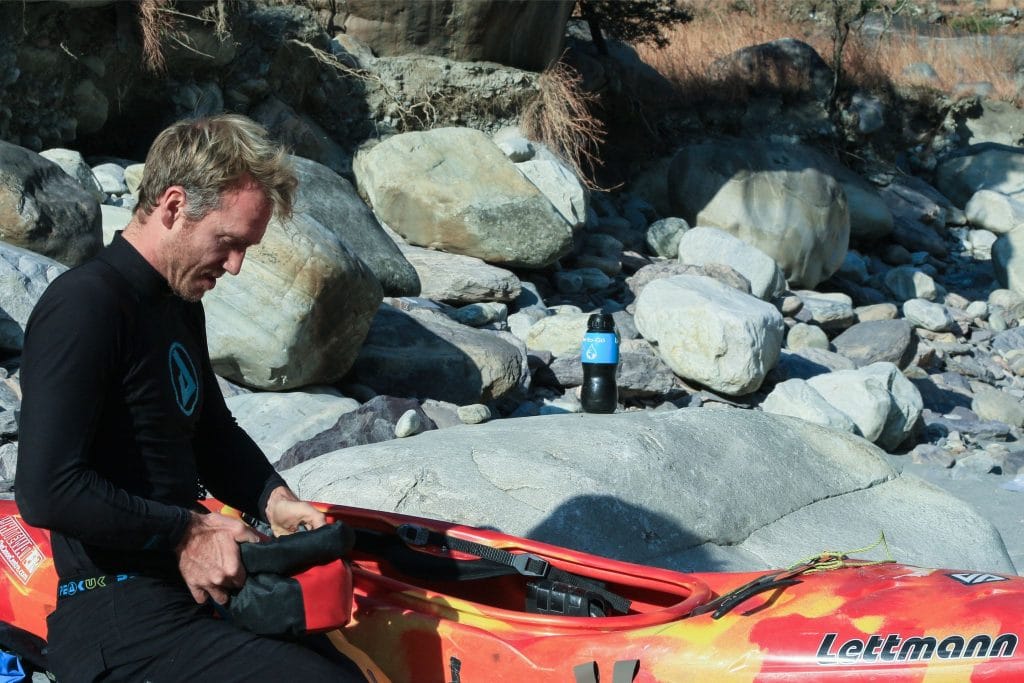
We hope you found Chris' tips useful. For more advice and the latest paddle news, make sure to sign up to our paddle newsletter and follow our paddlesports Instagram! You can also learn all about our courses here, from introductory courses all the way through to NGB.
Special thanks to our incredible sponsors, Peak PS, who help keep our instructors warm on the water.
Kendal Mountain Festival's Official Skills and Training Partner
Kendal Mountain Festival is a celebration of outdoor culture, bringing together adventurers, filmmakers and lecturers to inspire more people to explore, enjoy and represent mountains, wilderness and their cultures.
We were delighted to attend this year as the Festival's Official Skills and Training Partner. Our vibrant tipi was based in the heart of the legendary Basecamp Village; a social hub for brands to bring their story to life amongst people that love and cherish the outdoors. Ticket sales were over 25,000, which was up from 20,000 last year with a brilliant broad reach of disciplines within the outdoor industry represented.
Following an amazing weekend, we want to thank the incredible people that made it happen.
Bringing Our Tipi to Life
Whilst our cosy tipi was by no means our instructors' natural environment, it gave us the perfect platform to capture our passion for the outdoors. It was a place where we could catch up with old friends and make new ones. Shout out to Alex from Covered in Style for supplying our wonderful tipi and Colin Holden Design for creating such a magical space.
No details were missed, from the foliage and slate archway to the hanging lit-up kayak. We used an array of colourful kit provided by our lovely sponsors to dress the interior. Thank you to Mountain Equipment, Peak, Scarpa, Petzl, DMM, Fjällräven, O'Shea, Edelweiss, Deuter and Evolution Bikes.
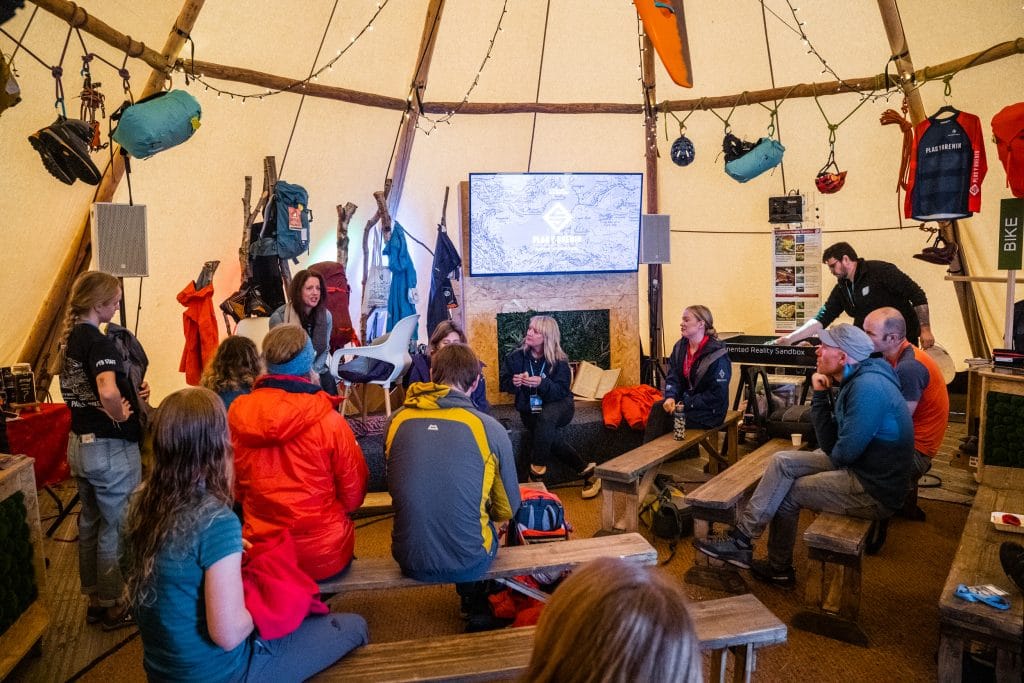
Our Talented Speakers
With the help from our qualified instructors, Mountain Equipment athletes and other external speakers, we provided our top tips on how to plan anything from your first solo adventure, weekend camping trips with the family, to bigger expeditions abroad.
A massive thank you to Jake Webb for capturing the whole event and to all of Friday's speakers:
- Ruth Hall - The Role of a National Outdoor Centre
- Pete Astles - Peak Sewn Friendships
- James Bruton - Four Months to Change Your Life with PYB's Fast Track Programme
- Dave Evans - A Year in the Life of a PYB Instructor
- Harrison Ward - Live Cooking with Fell Foodie
- Dani Robertson - The Secrets of Eryri's (Snowdonia's) Dark Skies
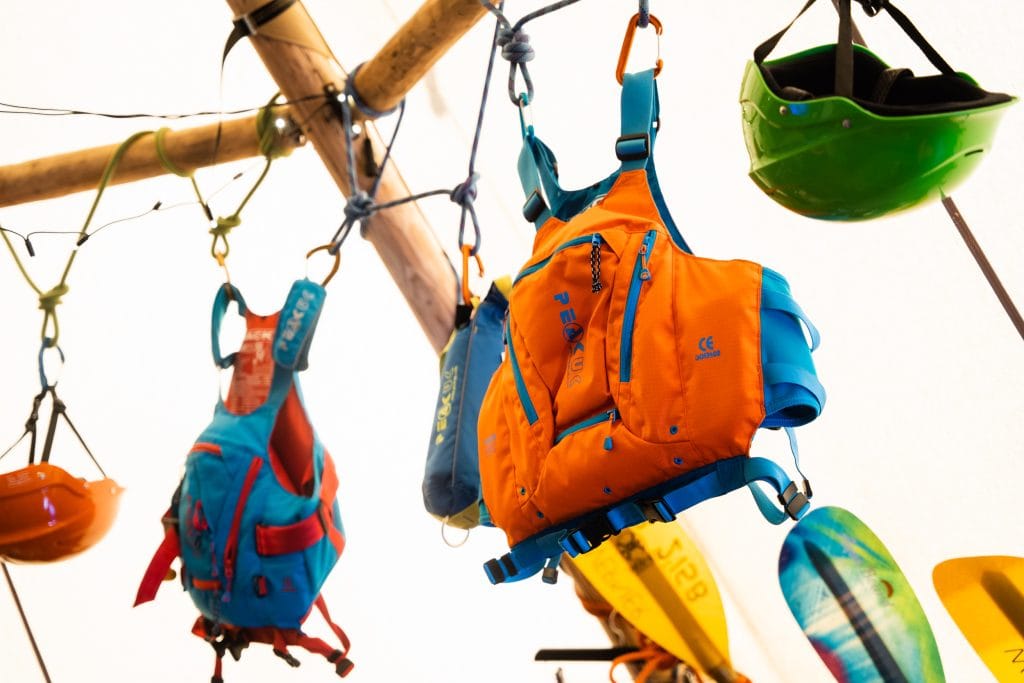
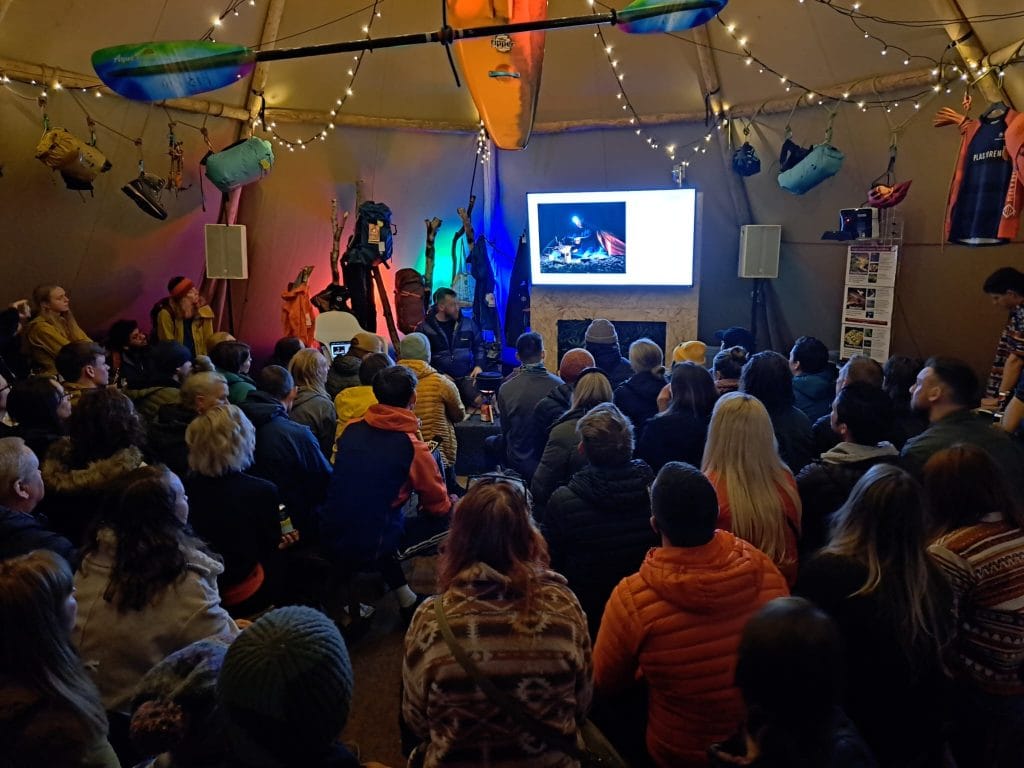
- Brad Reed and Iona Pawson - Your Adventure Toolkit
- Brad Reed, Fran Cavanagh and Jen Roberts - Kickstarting Your Next Adventure
- Kirk and the Cumbrian Team - All Things Ultra Marathons
- Rich Breeden - Trash Free Trails
- Tom Livingstone and Lou Beetlestone - UK Skills to Big Hills
- Dave MacLeod and Dave Evans - How to Improve as a Rock Climber
- Harrison Ward - Live Cooking with Fell Foodie
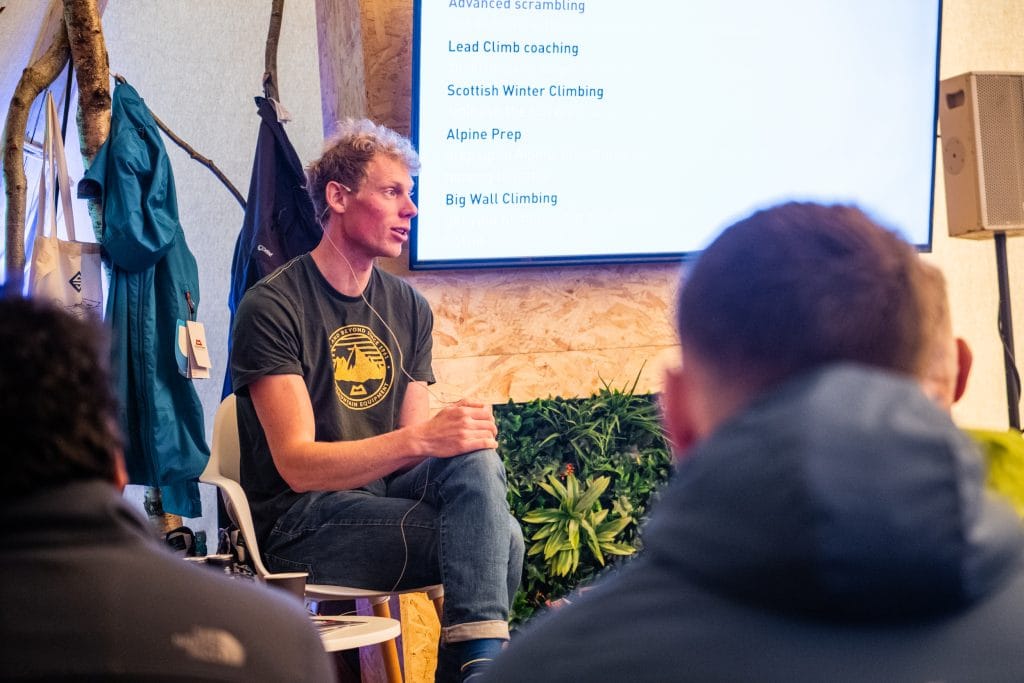
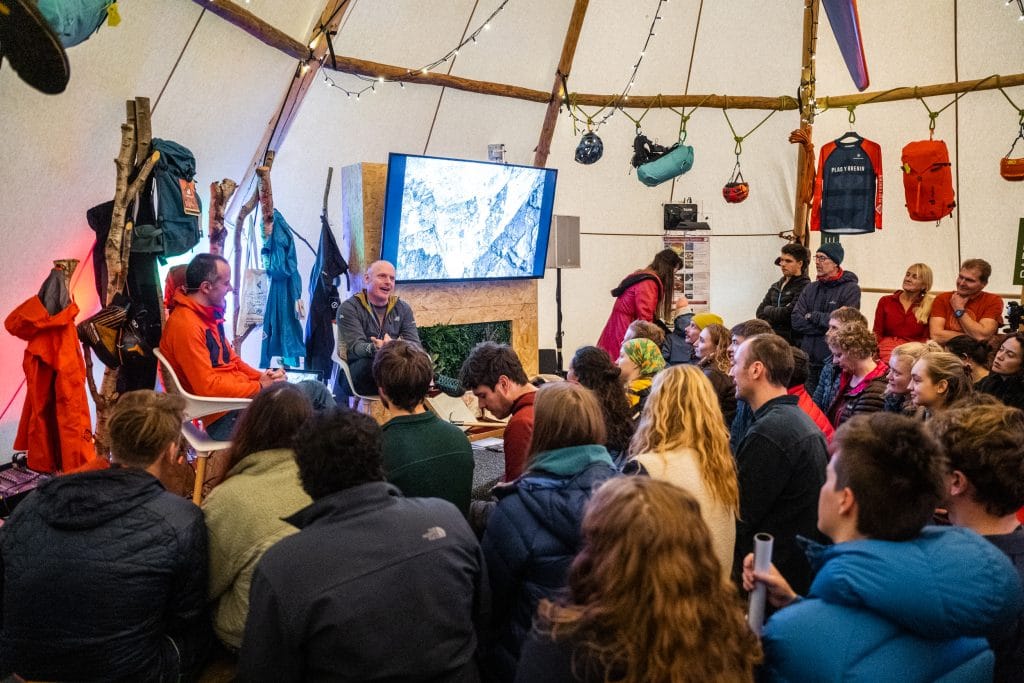
- Lou Beetlestone and Emma Warren - Winter Kit and Coffee
- Will Nicholls and Rich Gentry - Avalanche Awareness
- James Thacker - Avalanche Decision-Making
- Matt Stygall - Why Winter is Ace
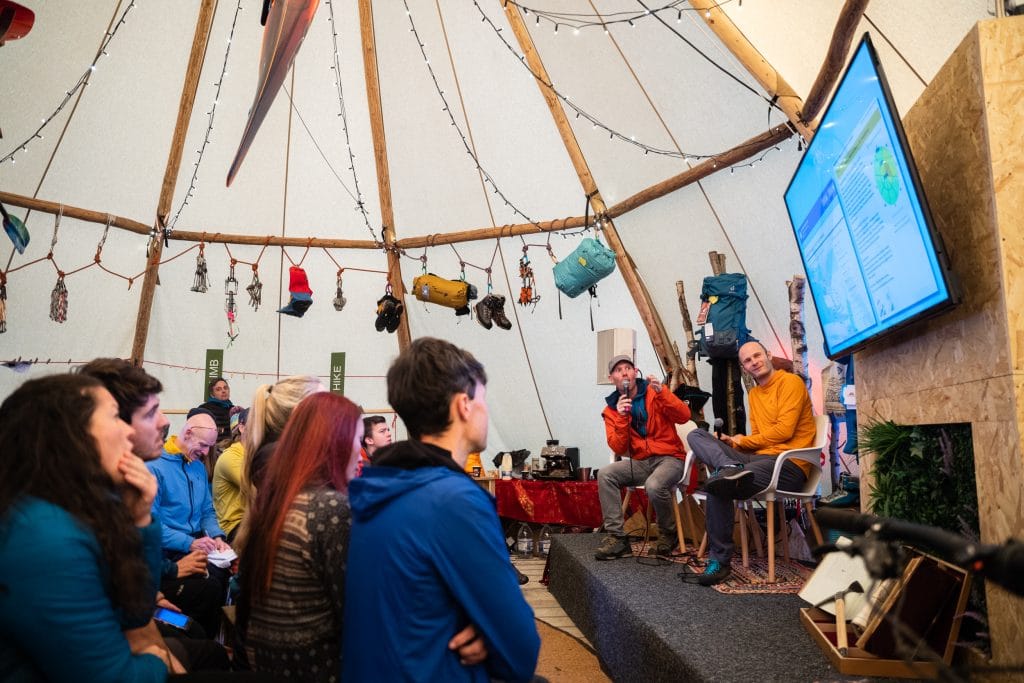
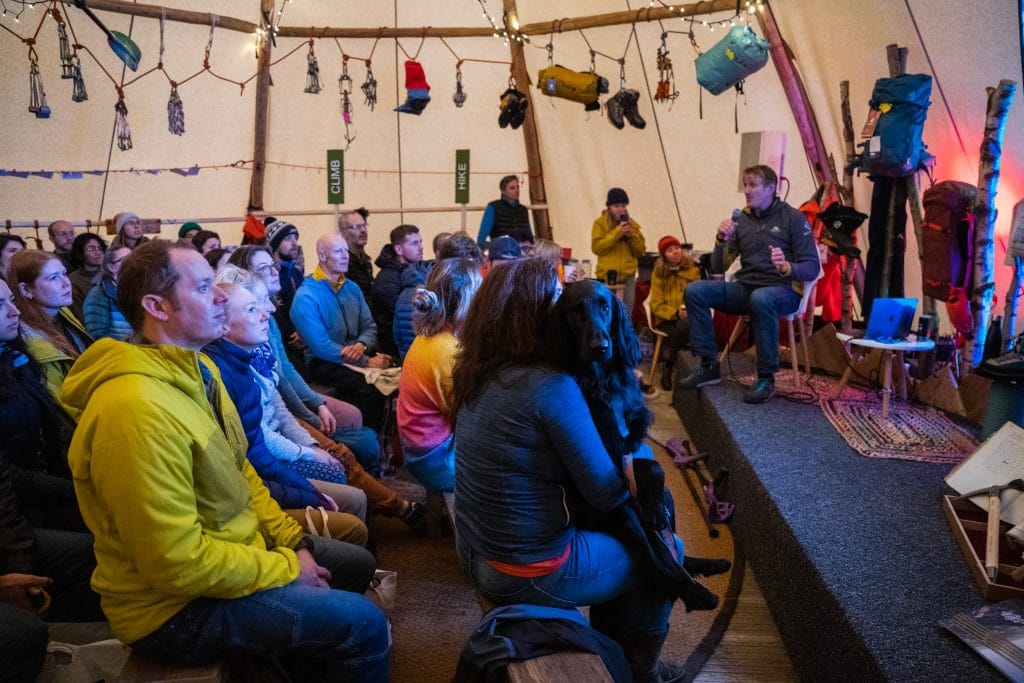
If you would like to view speaker presentations, you can view some of them here.
Live Scribing with Chapple Cartoons
We wanted to capture our talks in a powerful and memorable way, and we are delighted with the outcome. The amazingly talented Caroline from Chapple Cartoons joined us with her giant canvas for a day of live scribing. We loved watching the drawing evolve throughout the day, and even incorporate your own messages into the illustration. We can't wait to showcase the canvas here at the centre.
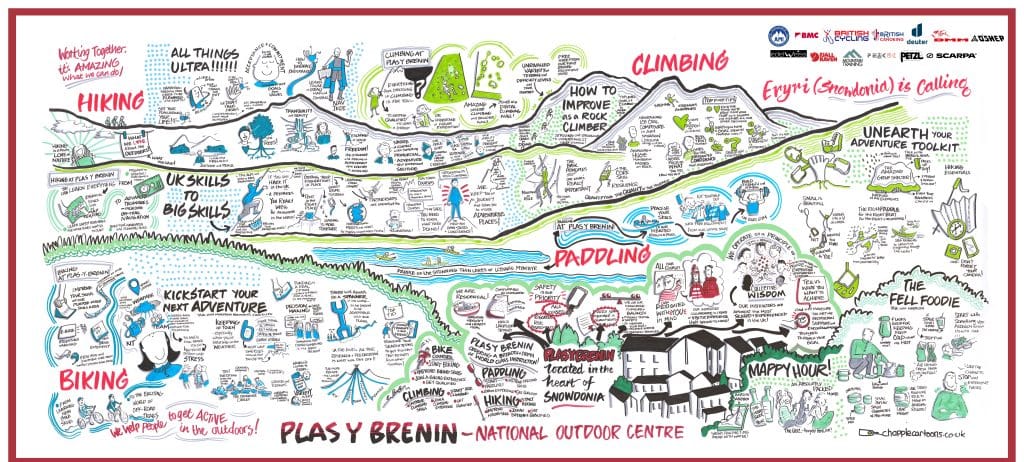
A Full Tent for Mappy Hour
Mappy Hour... think free beer, an Augmented Reality (AR) sandbox, mingling, and maps. Lots of them!
We loved hosting our first Mappy Hour sessions with the help from Ordnance Survey (OS) and JBA Trust. It was great to see so many adventurers in one place, hanging out over beer that we created especially for the festival. You got to design your own landscapes through JBA Trust's AR Sandbox; an interactive visualisation tool that shows how topography affects water moving through catchment. We also saw your competitive side through some map-related competitions that had some fantastic prizes up for grabs.
Night Navigation and eBike Sampling
Some very keen folk braved the elements to sample the delights that the Lake District had to offer through our Night Navigation and eBike Sampling. Thanks to Plas y Brenin's, Iona Pawson, James Bruton and Chris Evans, for heading up the sessions, and to Specialized Bicycles for our Turbo Levis and Exposure Lights for supporting the event and supplying the very best lights for the job. We were delighted to give away a superb Exposure Diablo MK12 as part of our bike competition, kindly donated by Exposure Lights.
Relive the Festival Online
We would like to thank the Kendal Mountain team for such an inspiring and community-led event. We hope that sharing our stories encourages more communities and young people to get active in the outdoors. You can catch up on the festival online through the Kendal Mountain Player. Looking ahead, we are excited to join Kendal Mountain Festival for the 2023 UK Festival Tour, packed with new speakers and films to see. If you'd like to know more, sign up here!

Plas y Brenin and Mountain Training to Hold First-Ever Women in Mountain Training Conference
We’re proud to be hosting the inaugural Women in Mountain Training conference this October, as an important part of both Plas y Brenin and Mountain Training’s commitment to gender equality strategy to develop women in adventure activity leadership.
While the gender balance in outdoor education and leadership has improved, fewer women register and attend assessments for Mountain Training qualifications than men. The conference will aim to promote and support women within the adventure leadership sector. One of the driving elements of the conference is helping women build knowledge networks and explore the differences between men and women when building their careers and taking on leadership roles. A knowledge network enables women to go beyond their qualifications.
The ‘women-focused’ space will enable women, leaders and those from marginalised genders to explore new ideas, find solutions and share best practices to tackle those inequalities. The two-day free conference will feature workshops from inspirational women working in the outdoors. Themes include juggling parenthood, body inclusivity and building confidence and resilience.
Nicola Jasieniecka, Media and IT Development Officer at Mountain Training, comments: “Research undertaken by both Mountain Training and others shows women have different experiences to their male counterparts when undertaking Mountain Training qualifications and in their careers as leaders. Despite gender balance improving across all qualification levels, fewer women register, complete training and attend assessments for Mountain Training qualifications than men - a trend which becomes more pronounced in the higher qualification levels.
“With women and other marginalised groups still experiencing discrimination in society and the adventurous activity sphere, it is hoped the conference will allow women and leaders who identify as other marginalised genders to explore ideas, solutions and best practices which can be shared more; widely.”
Helen Barnard, Chief Instructor at Plas y Brenin, adds: “As the National Outdoor Centre, it is our role to set standards and drive change within the industry. We are incredibly proud to be the host venue for the conference.
“The face of the outdoors is changing, and as leading organisations in the outdoor industry, it is our responsibility to address inequalities and make sure we’re listening to concerns, acknowledging barriers and taking action to combat them.”
Saturday's optional sessions:
- Knowing when you’re ready for assessment - Kath James
- Turning qualifications into a successful career/business - Siân Brewer
- Body inclusivity in adventure activities - Maddie Sweetman
- Pack hacks and top tips for a woman-friendly kit - Jenny Dart
Sunday's optional sessions:
- Mountains and parenthood: Having a family and an adventurous career - Mikaela Toczek
- Building resilience, confidence and challenging imposter syndrome - Dr Rebecca Williams
- Taking it to the next level – living and working through peri-menopause and menopause - Katherine Schirrmacher
- Understanding leadership styles and developing your practice - Dr Samantha McElligott
The event is now sold out. More information can be found on Mountain Training's website.
Plas y Brenin Powers Up with New Electric Mountain Bike Courses
Getting to grips with Snowdonia's many mountain bike trails will now be easier with Plas y Brenin's new e-mountain bike courses starting in September.
The popularity of e-bikes has seen an upsurge in those looking to explore more technical and demanding tracks. Plas y Brenin's purpose-built bike centre includes a specialist workshop and on-site skills courses. So as well as heading out on amazing trails, participants will be able to practice on dedicated skills areas and wider tracks.
The E-Bike Essentials course will also provide riders with a dedicated action plan for their future riding journeys. Led by experienced instructor James Bruton, you can even try out the Specialized Turbo Levo e-mountain bike before committing to buying your e-bike.
Going beyond the essentials course is a two-day E-Bike Snowdonia experience, taking in several of North Wales's classic routes. This includes the stunning Gwydir forest, the breath-taking North Wales coastal routes, and the varied mountainous trails from the Plas y Brenin base. Access to the Martin, Penmachno and Coed y Brenin trail centres are nearby, including the Yr Wyddfa - one of the country's most iconic mountain bike routes.
James Bruton, senior instructor for the e-bike courses at Plas y Brenin, has over a decade of mountain bike leadership.
He said: "e-bikes offer an enhanced experience for all levels of riders, and we're pleased to be able to offer our new course for novices and existing riders alike. In addition, our dedicated workshop session will help new owners get to know their bikes, undertake safety and maintenance efficiently, and build confidence in their future riding."
For more information and to book the courses, please visit:
E-Bike Essentials - https://pyb.co.uk/courses/e-bike-essentials/
E-Bike Snowdonia - https://pyb.co.uk/courses/e-bike-snowdonia
Mountain Training Trust and Plas y Brenin Welcome New Chair and Trustees to Advance the National Outdoor Centre
The Mountain Training Trust (MTT), operator of Sport England’s National Outdoor Centre, Plas y Brenin, is delighted to announce the appointment of a new Chair of Trustees, and three new Trustees.
Peter Ashman moves into the role of Chair after two and a half years as a Trustee on the MTT Board, taking over from Sara Mogel OBE, who stepped down this year after serving in the role for five years.
During his career, Peter spent 30 years in healthcare and scientific publishing and was CEO of the international health information and education company BMJ Publishing before retiring early in 2019. He also spent five years as Chair of the publishing trade association ALPSP, which represents the interests of not-for-profit scholarly publishers and which also produces its own training and events.
Passionate about the outdoors, Peter spends much of his free time walking in the Chiltern Hills and, occasionally, open water swimming – one of Plas y Brenin’s more recent programmes.
Joining him on the Board as Trustees are Ben Coates, Lisa Dickinson, and Matthew Tennant, replacing former Trustees Sara Walker and Rona Chester.
Ben Coates is currently Chief of Staff at the Equality and Human Rights Commission and a Trustee of Cardiff-based equalities charity, Diverse Cymru. Lisa Dickinson has led a wide range of people, cultural and IT change and transformation projects and programmes in the private sector, and is a #ShePaddles ambassador for British Canoeing as well as a qualified whitewater leader. With a career working in educational organisations and professional bodies, alongside various non-executive roles within charities, Matthew Tennant is currently Chair of the Trustee Board for OutdoorLads, a UK-wide charity running outdoor activities for the LGBTQ community.
The new roles commence in a pivotal year for the Centre as it begins to emerge from the Covid pandemic, which severely impacted outdoor education and the wider outdoor industry. Peter’s leadership, supported by the Trustees, will be instrumental in shaping the future of the Centre as it welcomes new partnerships, bolsters its offering, operates more sustainably and boosts participation in outdoor activities from all communities.
Commenting on his appointment, Peter Ashman said: “I’m delighted to be appointed as Chair of Mountain Training Trust, operating Sport England’s National Outdoor Centre at Plas y Brenin. The Board of Trustees and I look forward to supporting CEO Ruth Hall and her team through a very exciting period of growth, as we implement the strategy to offer world class outdoor training in our stunning location in North Wales and beyond. We will also work to encourage a greater number and wider variety of people to experience the benefits of being outdoors. Over the last two and a half years, there has been an enormous growth in the number of people exercising outdoors and the physical and mental health benefits are well documented.
“I look forward to working with Sport England, our wide range of stakeholders across the outdoor sector and many more like minded organisations which share our passion for the outdoors.
“I encourage anyone to come and visit us in North Wales and experience the benefits, thrill and hospitality which Plas y Brenin has to offer.”
Ruth Hall, CEO at Plas y Brenin, said: “Firstly, I wish to thank Sara Mogel for her tremendous help and support over the last five years. Her insights and direction have been invaluable and I will miss her guidance and leadership.
“At the same time, I’d like to warmly welcome Peter as incoming Chair and Ben, Lisa and Matt as Trustees. Peter’s experience and knowledge of both the corporate and non-profit sectors will equip him well for his new role as Chair. We look forward to his contributions towards shaping the future of Plas y Brenin. We’re delighted he is joined by three new members, all of which have fantastic and varied experience that we believe will create a strong Board, comprising a variety of backgrounds and perspectives that can only benefit the future of the Mountain Training Trust and Plas y Brenin as it cements its position as a leading provider of training in the outdoors.”
The Board of Trustees, all of whom are volunteers, oversee the activities of the charity (Mountain Training Trust and Plas y Brenin). The Board shapes the strategic development of the charity, providing creative, insight-led and constructive input.
The new Trustees
Ben Coates
Ben is a public servant with a range of experience in central government and the public sector. He is currently Chief of Staff at the Equality and Human Rights Commission and prior to that worked at the Foreign Office, leading their major international education programmes. He is also a Trustee of Cardiff-based equalities charity, Diverse Cymru, an executive coach and a mentor with the Social Mobility Foundation. Ben is a keen climber, hiker and runner, making the most of the stunning outdoors on his doorstep in Cardiff.
Commenting on his appointment, Ben said: "Plas y Brenin is a special place – it's impossible to spend any time there and not be energised and inspired to get outdoors. I'm thrilled to have an opportunity to contribute to its future as a Trustee. The outdoors should be for everyone, not just a privileged few, and I want to see more people having their own adventures. Plas y Brenin, as the National Outdoor Centre, equips climbers, mountaineers, paddlers, mountain bikers and more with the skills they need to thrive outdoors. It's a privilege to be part of this.”
Lisa Dickinson
Lisa has nearly 15 years of experience working in the private sector, leading a wide range of people, cultural and IT change and transformation projects and programmes including a focus on strategy definition as well as Diversity and Inclusion.
With a background in Scouting and Guiding, Lisa has always had an interest in spending time in the outdoors. Most recently, she focussed her efforts on whitewater kayaking. She went from hating water and not being able to swim to becoming a qualified whitewater leader in 2021 and has spent the last year helping support other women who want to build their confidence in whitewater as a #ShePaddles Ambassador for British Canoeing. She is now working towards her whitewater coach award. Outside of paddling, Lisa is also a keen climber and walker and has recently completed her Mountain Leader training.
Lisa has first-hand experience of courses at Plas y Brenin and is excited about the opportunity to use her corporate and outdoor experience to help the MTT further grow their mission of helping people get active in the outdoors.
Commenting on her appointment, Lisa said: “I discovered Plas y Brenin last year and have been on a few courses since and loved them, so PYB has grown close to my heart as an outdoor organisation. When I saw the opportunity come up to join the board I just had to apply. I’ve got a lot of experience in the private sector across HR, IT, change and transformation and felt that I could apply that to help PYB in the next stage of its growth and evolution.”
Matthew Tennant
Matt’s career to date has been in Education, working in both Higher and Professional Body organisations, alongside various non-executive roles within charities. He is currently Chair of the Trustee Board for OutdoorLads, a UK-wide charity running outdoor activities for the LGBTQ community.
Commenting on his appointment, Matt said: “I am very excited to be joining the MTT Trustee Board. I have a lifelong passion for outdoor activity and Education, and my love for the outdoors is mainly involved in hill walking, mountaineering and more recently Paddlesports. MTT and Plas y Brenin have a fantastic offering ranging from professionals wanting to improve their skill sets to widening participation in the outdoors. A particular interest of mine is around developing, implementing and monitoring strategies to improve diversity and inclusion, while increasing engagement of under-represented groups in outdoor activities.”
Mountain Leader: What is a Quality Mountain Day?
Quality Mountain Days (QMD) and how to log them on your Digital Logbook (DLog) can be a very confusing element of the Mountain Leader Scheme (ML), so let’s clear up what counts and what doesn’t as a QMD.
Experience
Ultimately the ML is an experience-based award which includes training and assessment. It is awarded by Mountain Training – a collection of awarding bodies for skills courses and qualifications in walking, climbing and mountaineering in the UK and Ireland.
As an aspiring Mountain Leader you are on a journey to build your experience with a large variety of mountain walks combined with quality reflection after your hikes. Before training you need to achieve a minimum of 20 QMDs – and before assessment a minimum of 40 in total. The aim of the QMD system is to give the Mountain Leader an understanding of their personal experience level and guidelines on how to best develop.
As Mountain Training say, “Such days [QMD’s] make a positive contribution towards a person’s development and maturity as an all-round mountaineer.”
Definition of a QMD
To develop as a mountaineer, Mountain Training highlights eight points of which some or all are fulfilled to count as a QMD:
- the individual takes part in the planning and leadership
- navigation skills are required away from marked paths
- experience must be in terrain and weather comparable to that found in UK and Irish hills
- knowledge is increased and skills practiced
- attention is paid to safety
- five hours or more journey time
- adverse conditions may be encountered
- ascent of a substantial peak would normally be included in the day
This list promotes ‘the exploration of new areas’ and encourages Mountain Leaders to seek out ‘physical and mental challenge’ through ‘conditions experienced’ and ‘the terrain covered’.
Mountainous areas
Your QMDs need to be within ‘mountainous country’ in a minimum of three different areas. ‘For the purpose of the Mountain Leader scheme, ‘mountainous country' 'may be defined as wild country which may contain unavoidable steep and rocky ground where walkers are dependent upon themselves for immediate help’. Under this definition, Snowdonia counts but the Yorkshire Dales do not while most of the Scottish Highlands count but Dartmoor does not and the Lake District counts but not the Peak District.
However, walks in ‘non-mountainous country’ are very valuable. Whilst not directly ticking off the QMDs, these walks broaden a Mountain Leaders experience and should be logged as other categories such as Quality Hill and Moorland days or Mountain Walk as appropriate. A full list of Mountainous areas can be found at the bottom of this blog.
Camping
There is also a requirement before assessment to do 8 nights camping including at last 4 wild camps. ‘Wild camping takes place in moorland or mountain terrain remote from roads and habitation’. This is a great way to link 2 or 3 QMDs together in more remote areas and gain invaluable experience. Be sure to read up on environmental considerations before heading off on your first wild camp.
Close to the summit
The pursuit of QMDs can be seen as a fantastic opportunity to explore the mountainous areas of the UK. Is there an inspiring mountain you have always wanted to summit? Gather some information from guidebooks and online, clear a table, lay your map out and let your imagination take you on an adventure. From the top of that mountain, you may see your next inspiring objective. When you come down, you can reflect on your time in the mountains, gather your learning points and log it all on DLog. You can learn more about how to log your QMDs in the next blog. Happy Walking!
The quoted parts of this blog are from the Mountain Leader FAQ’s on Mountain Training’s website. If you want more information this is a fantastic resource.
In the United Kingdom and Ireland mountainous country includes:
- Snowdonia
- Brecon Beacons
- Lake District
- Mountains of Mourne
- Scottish Highlands
- Galloway Hills
- Cork & Kerry Mountains
- Galway & Mayo Mountains
- Donegal Mountains
- Dublin & Wicklow Mountains
